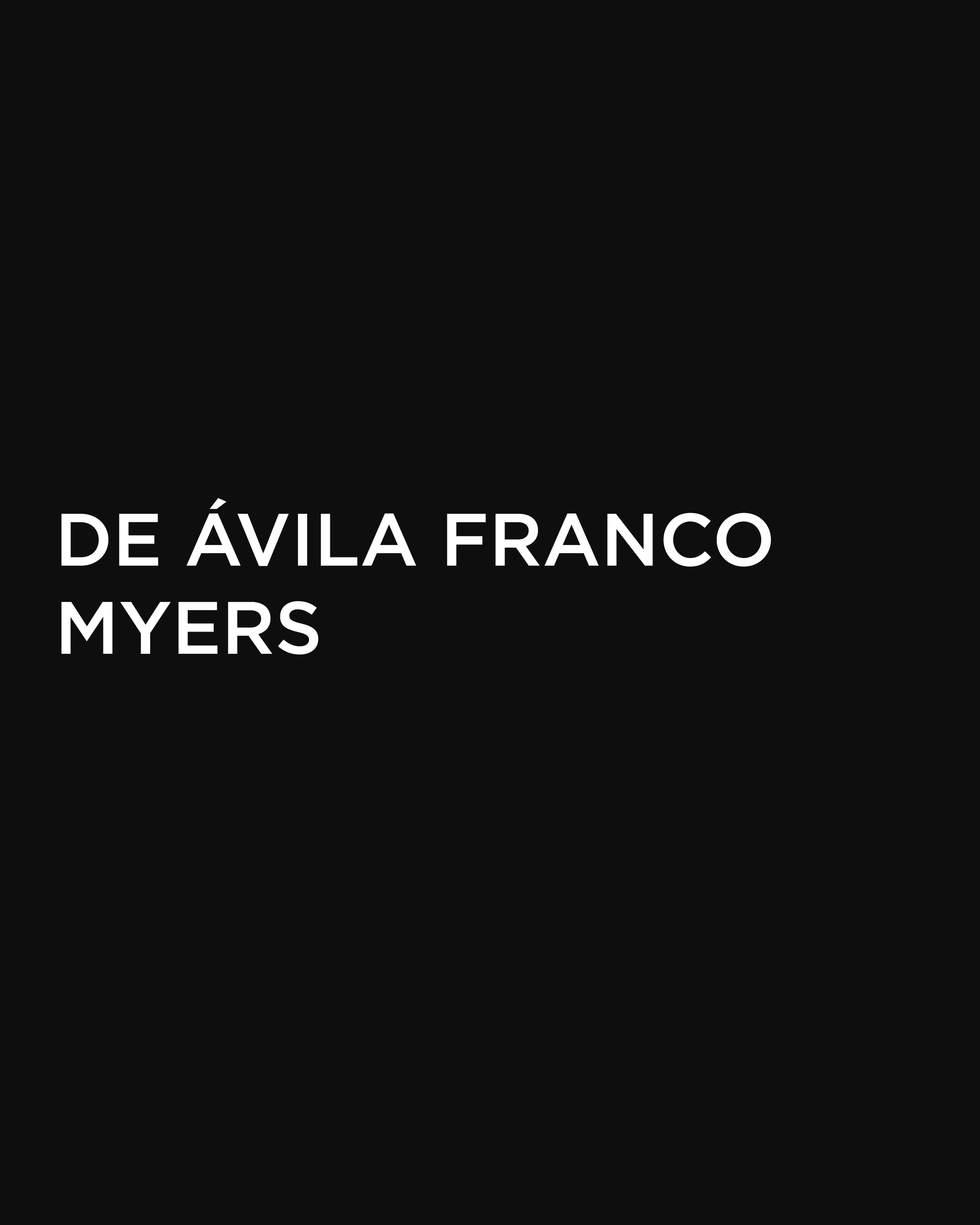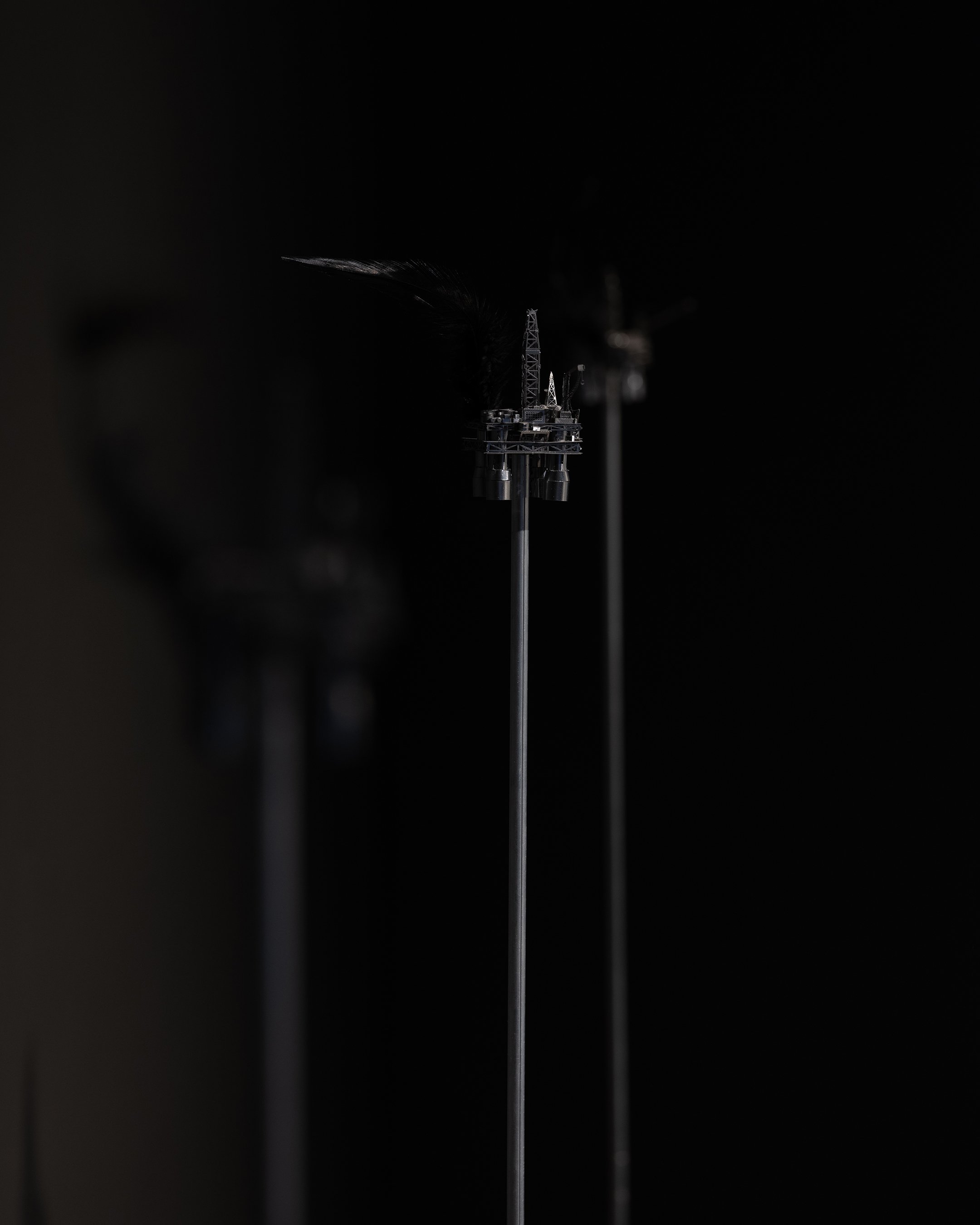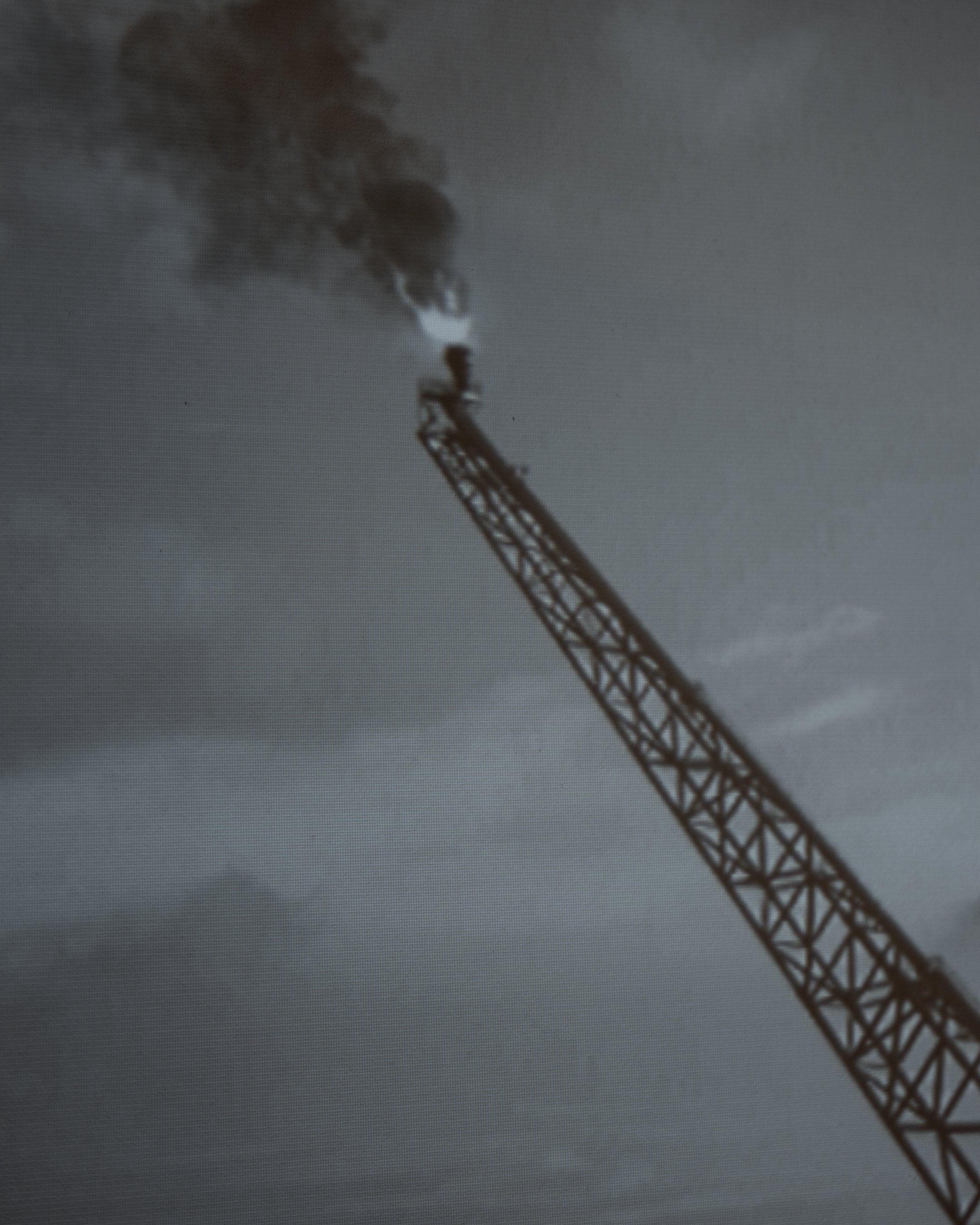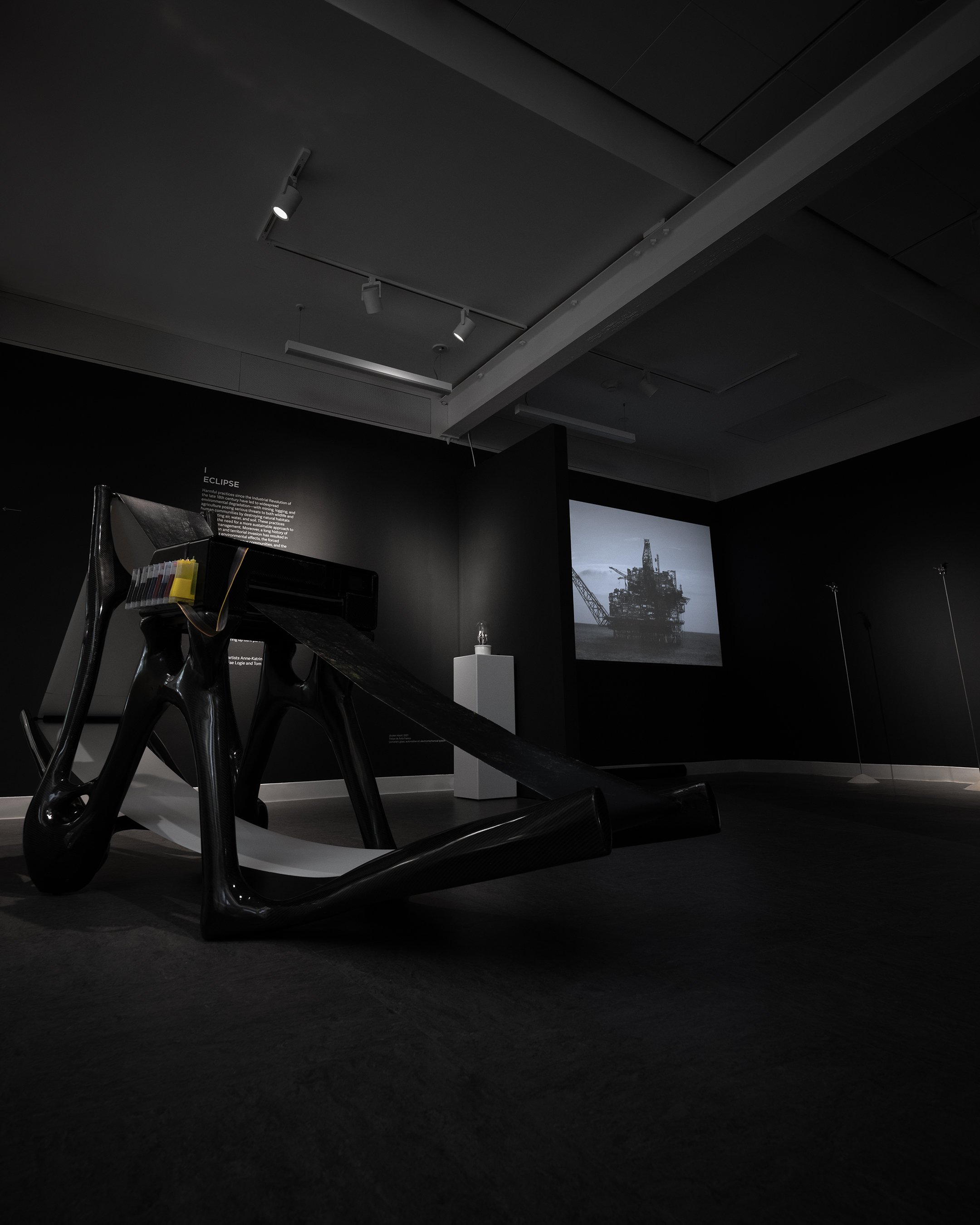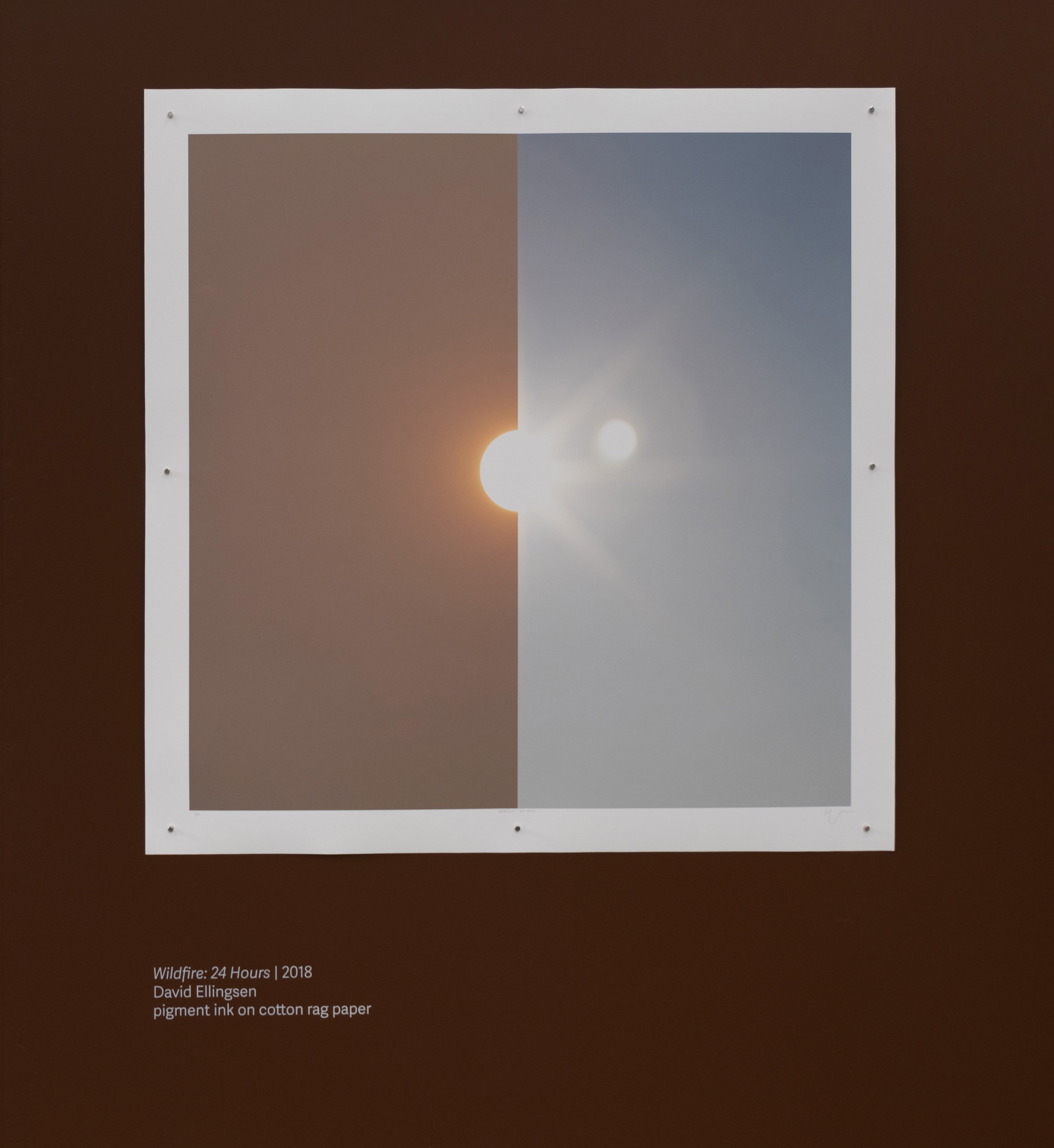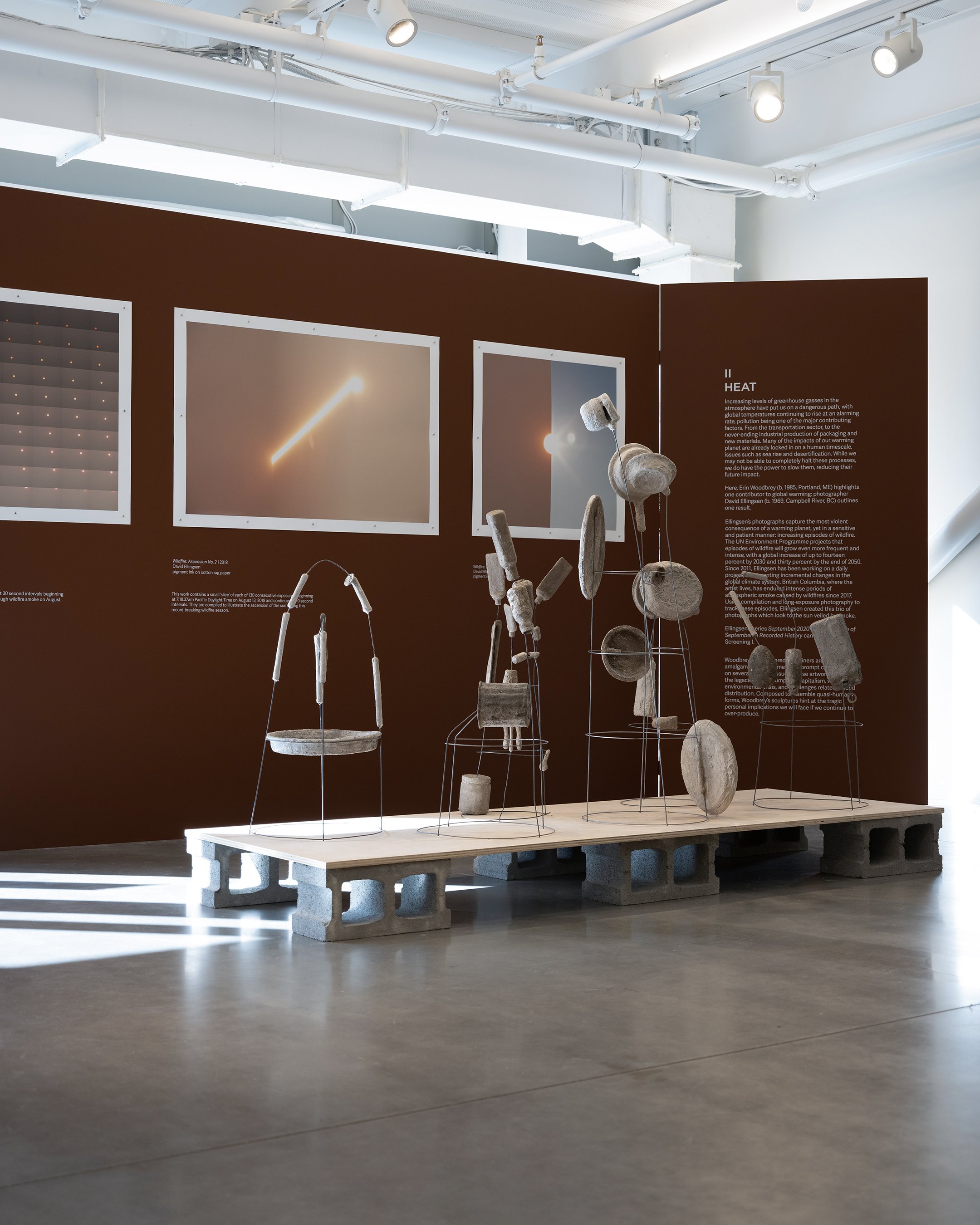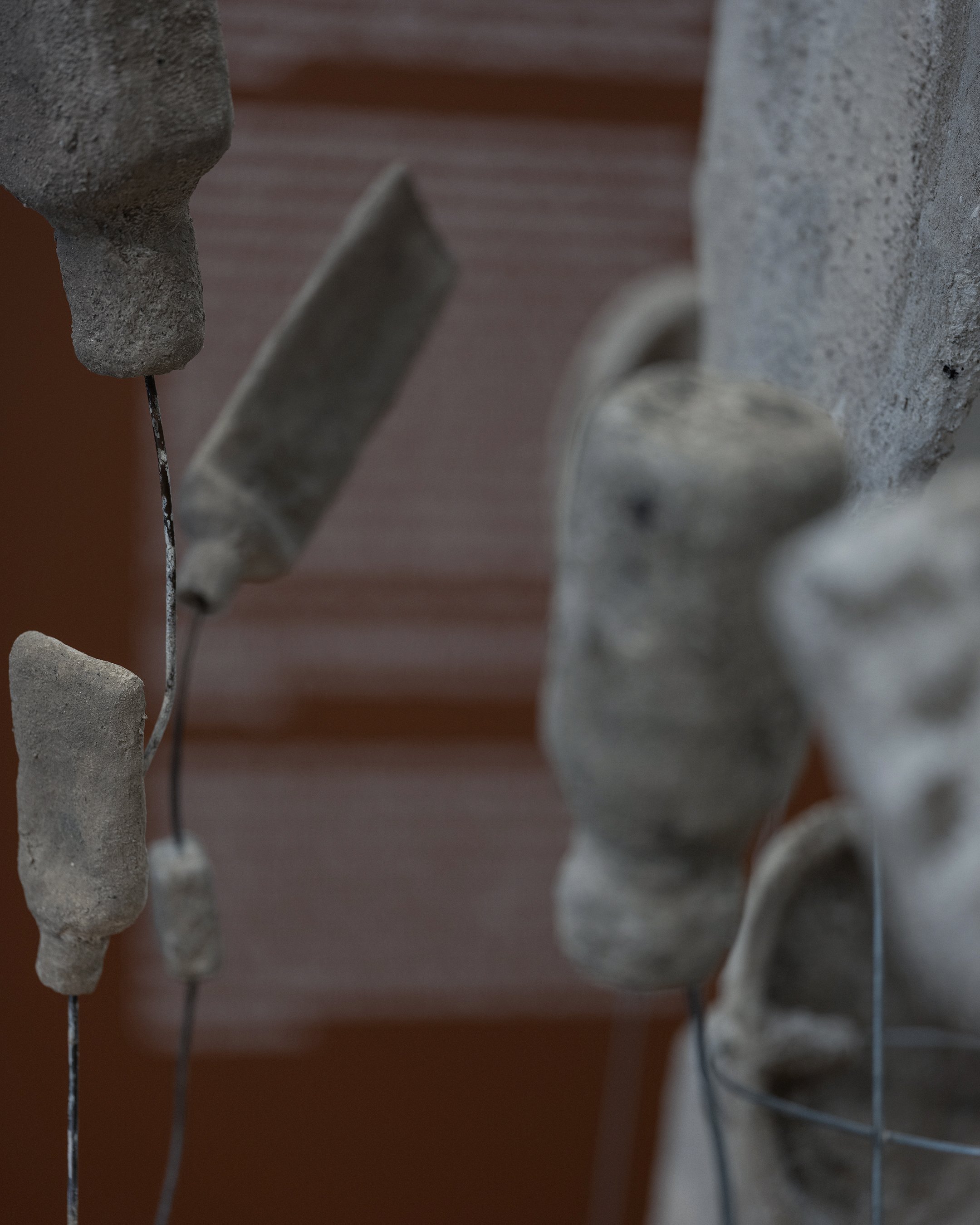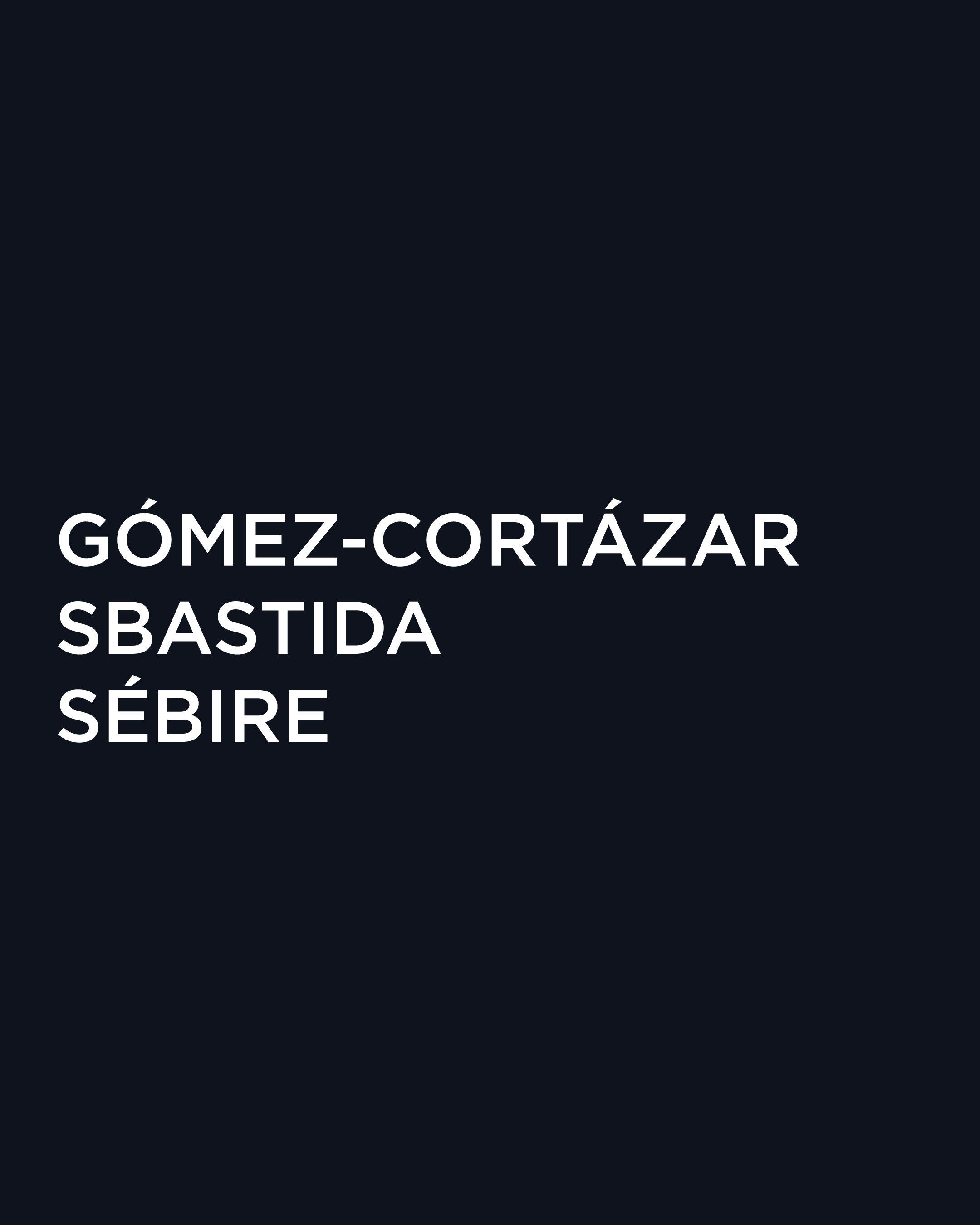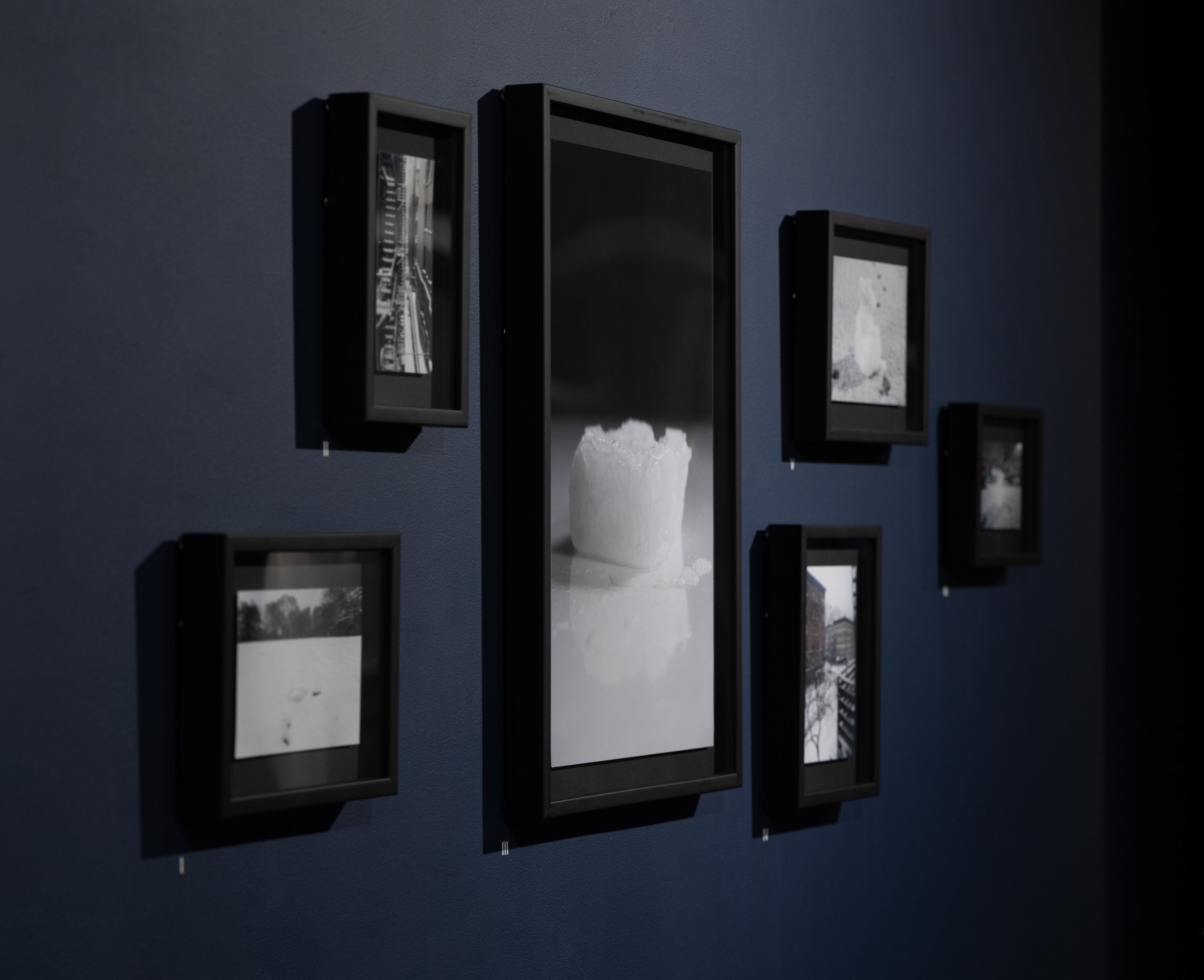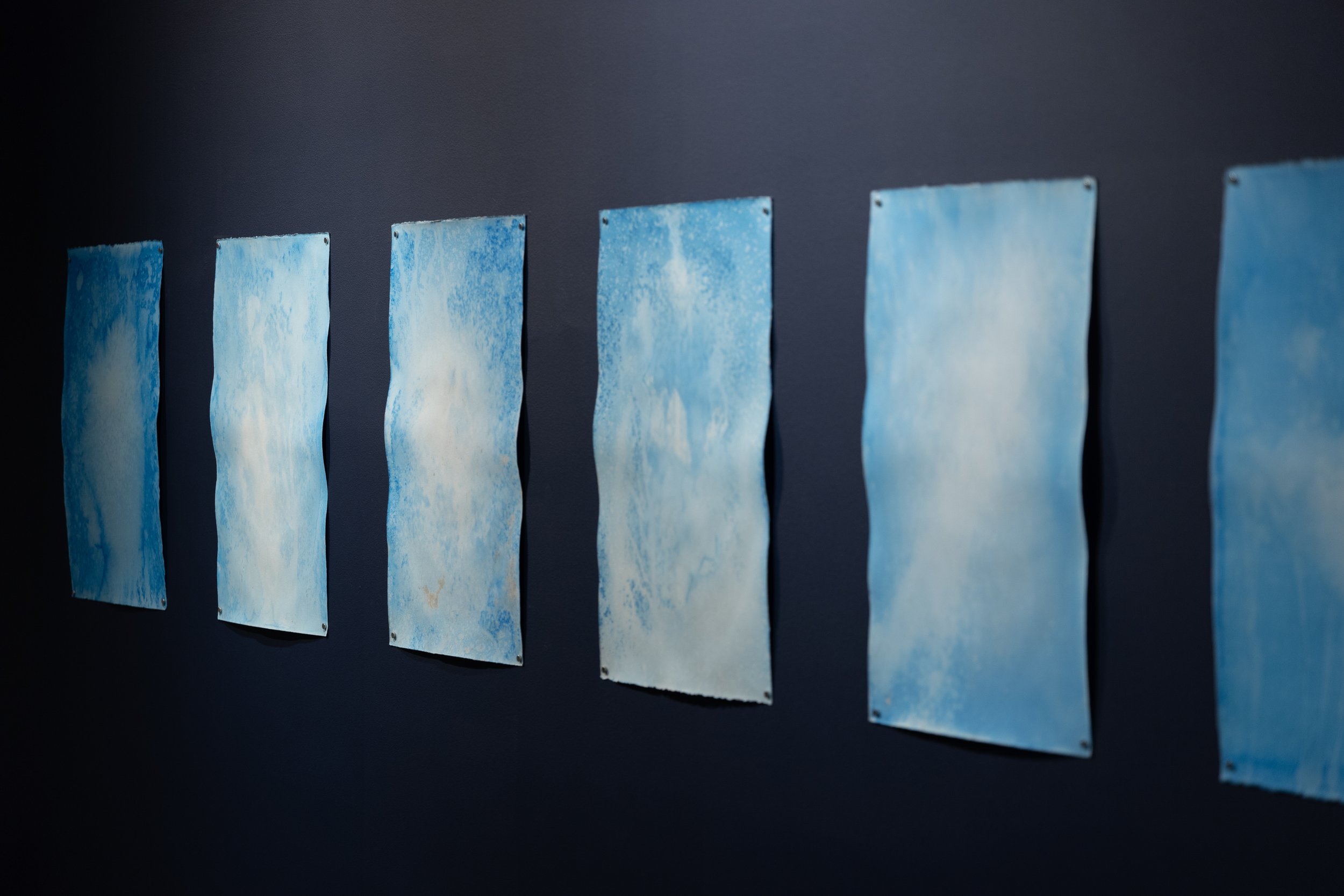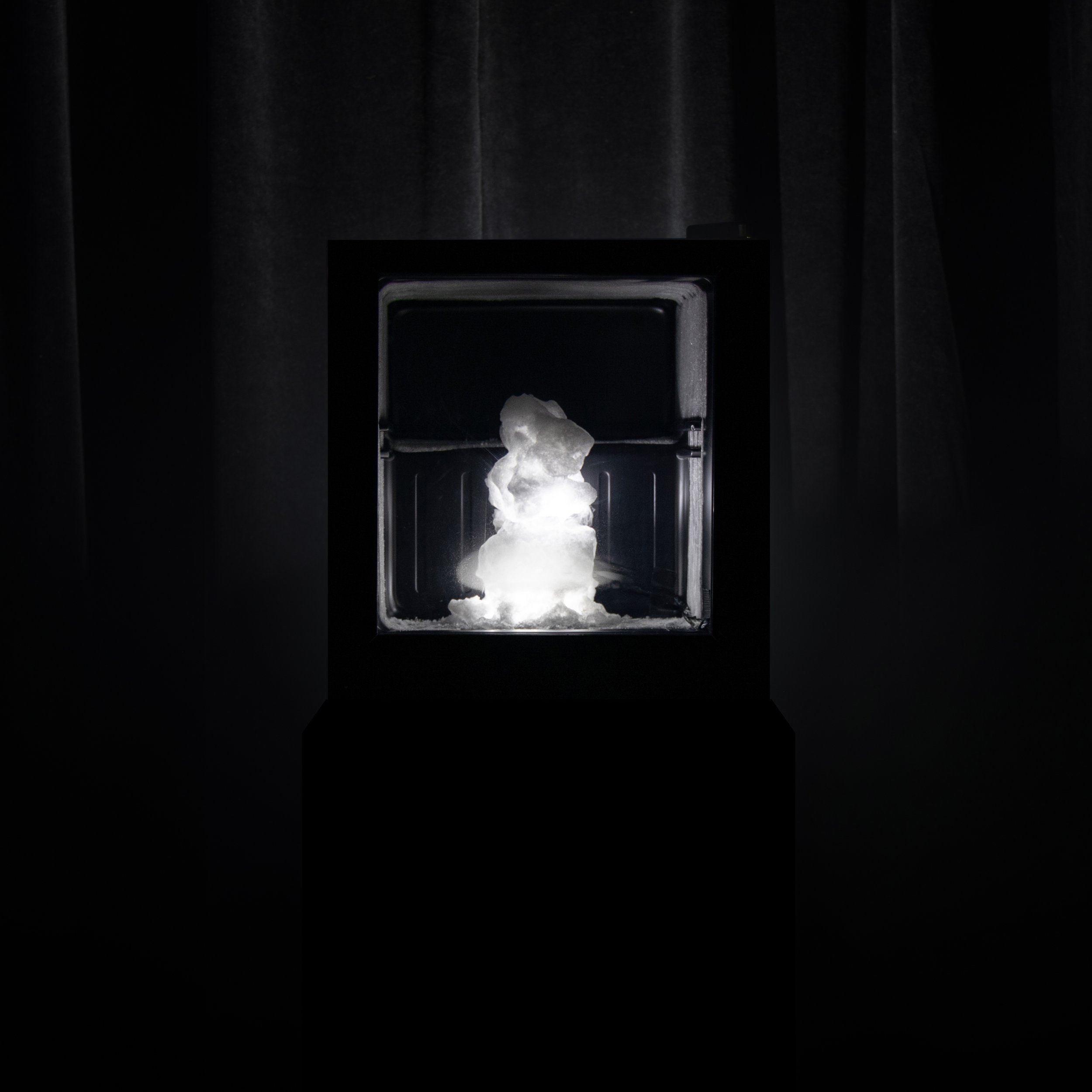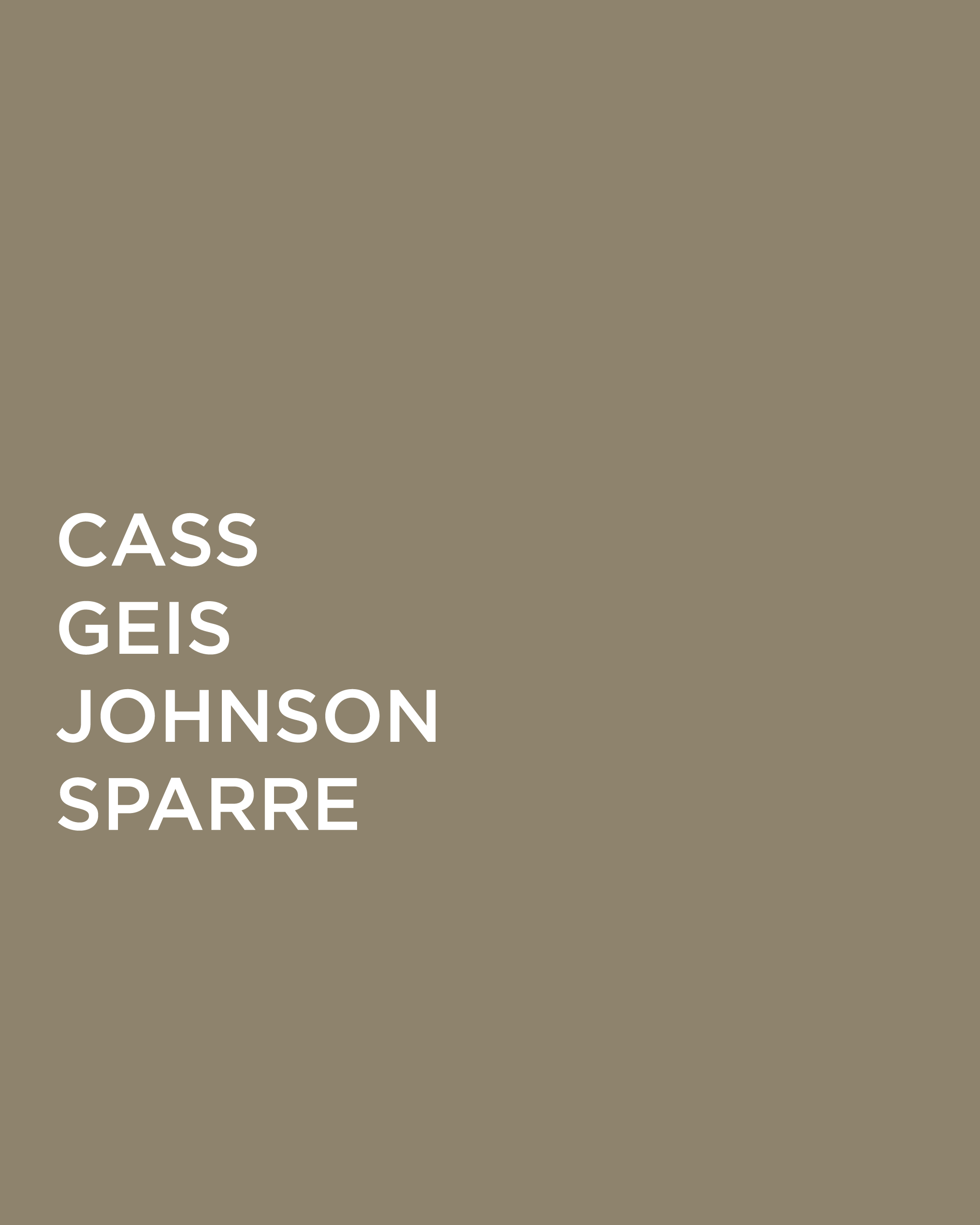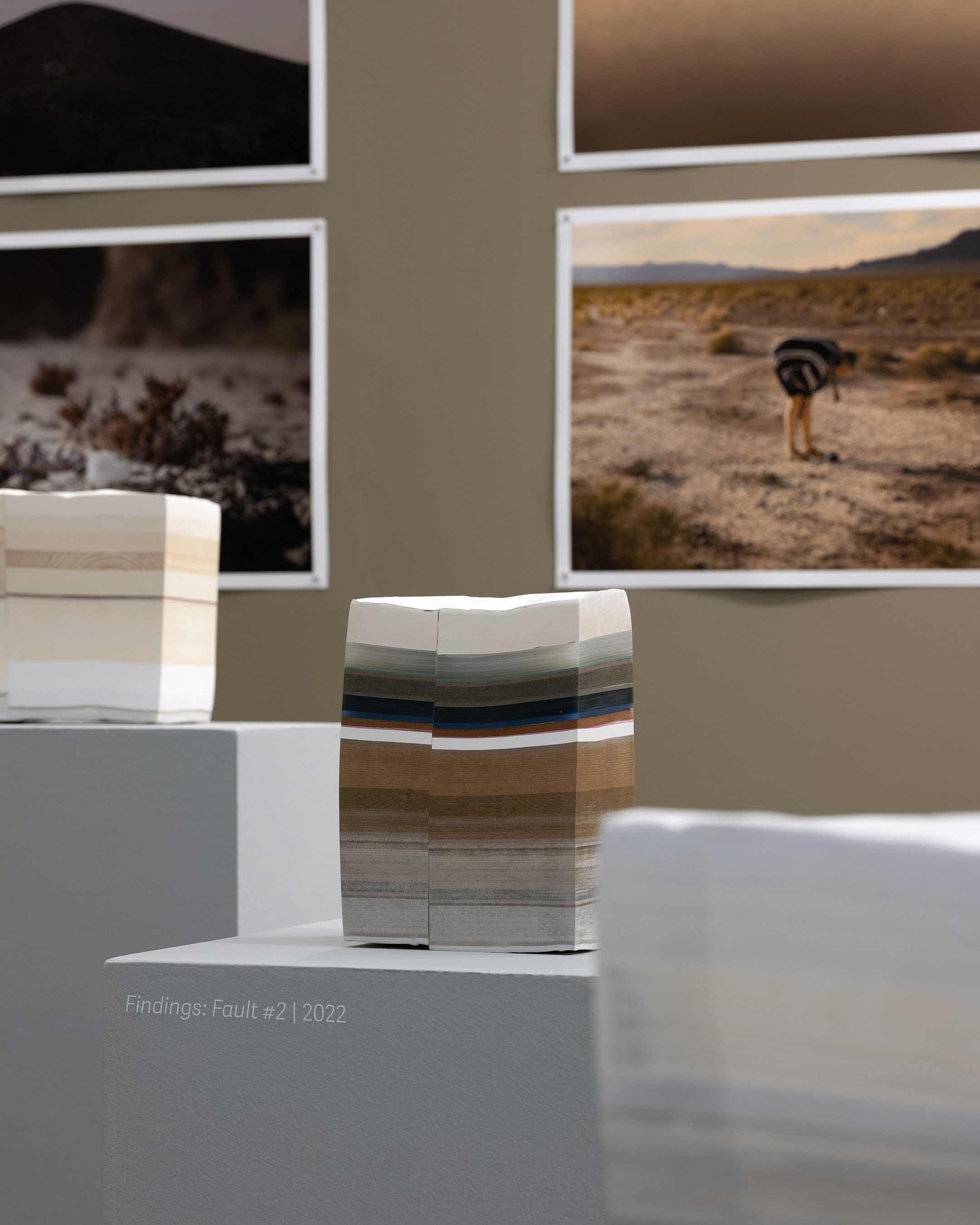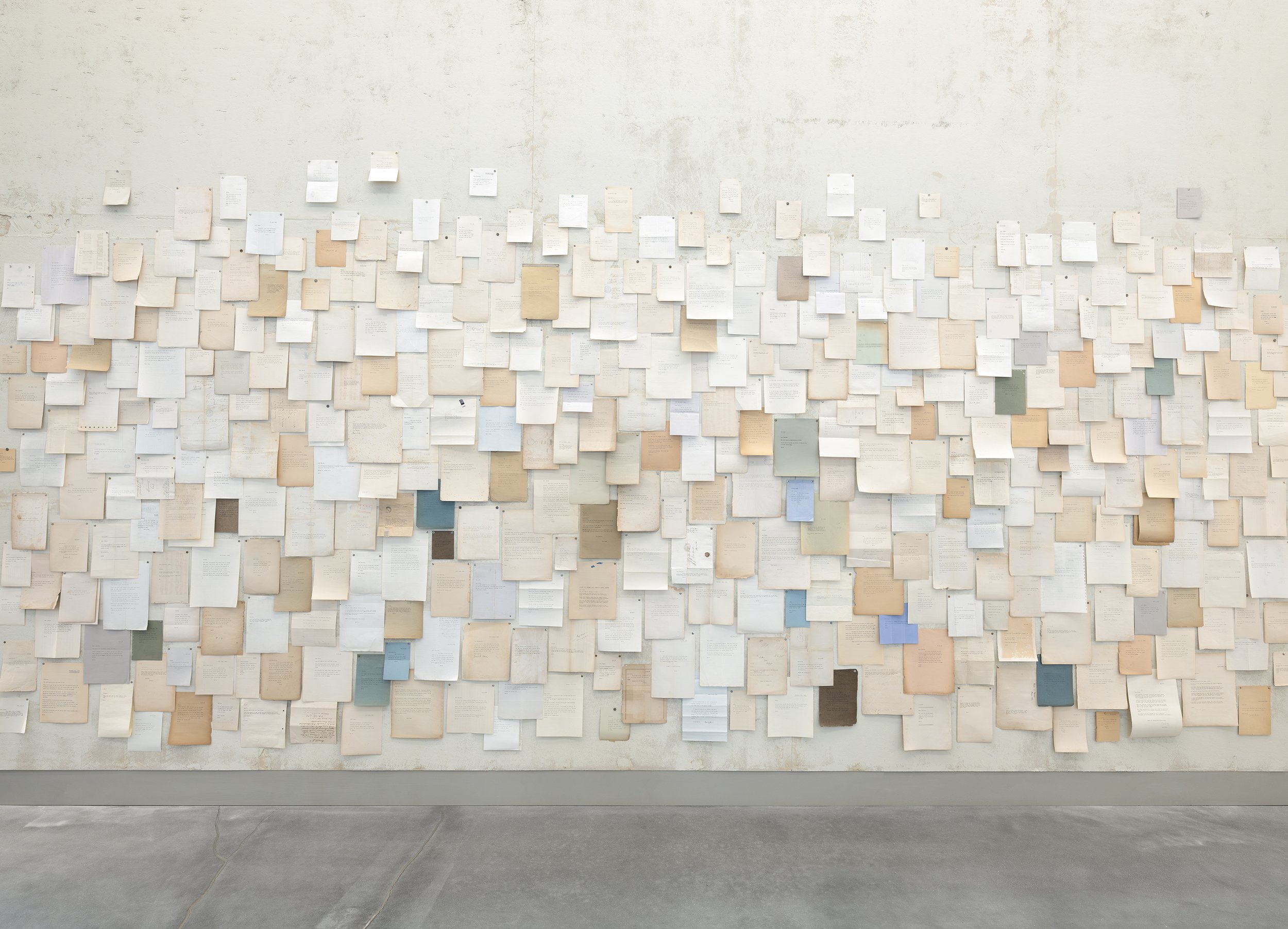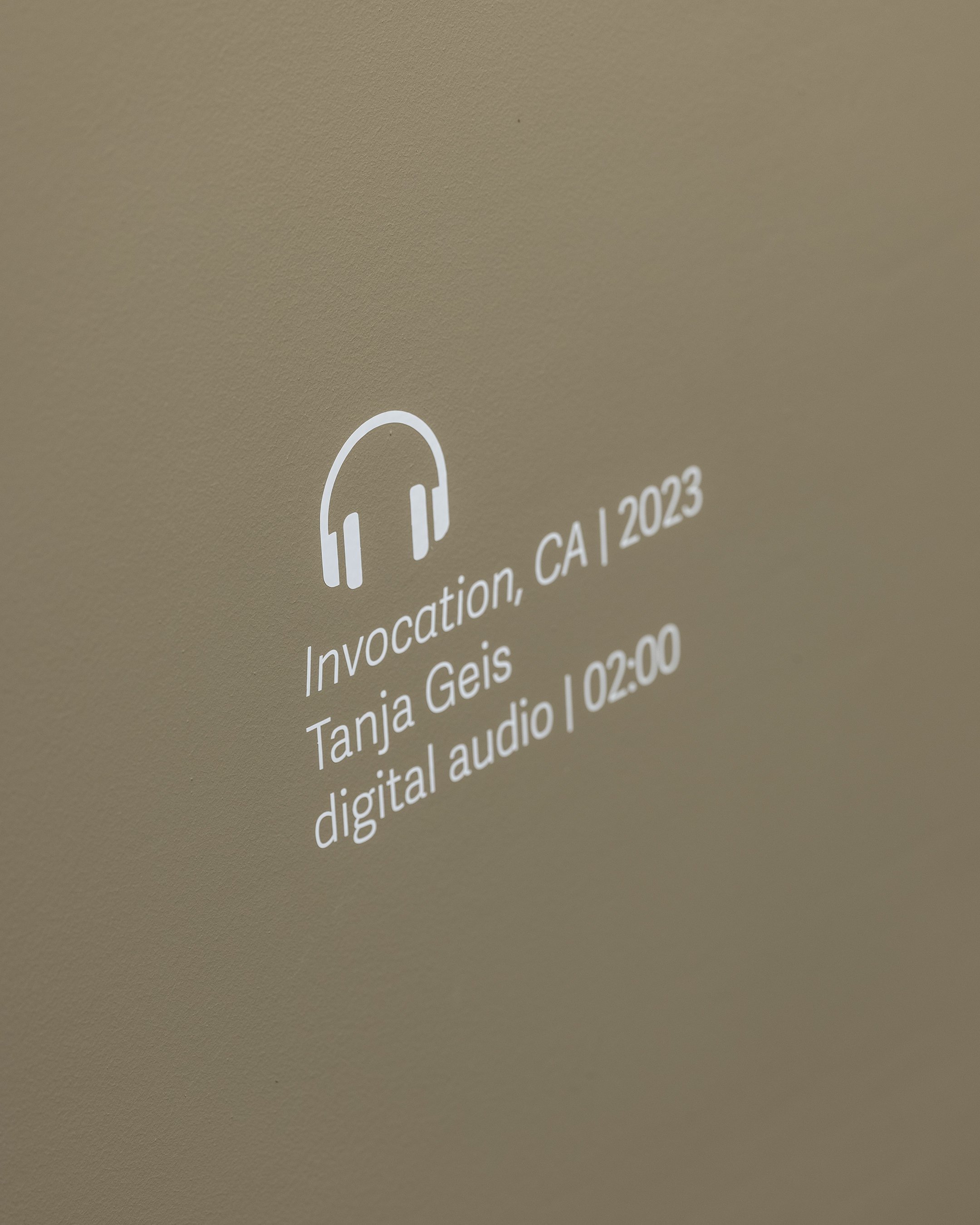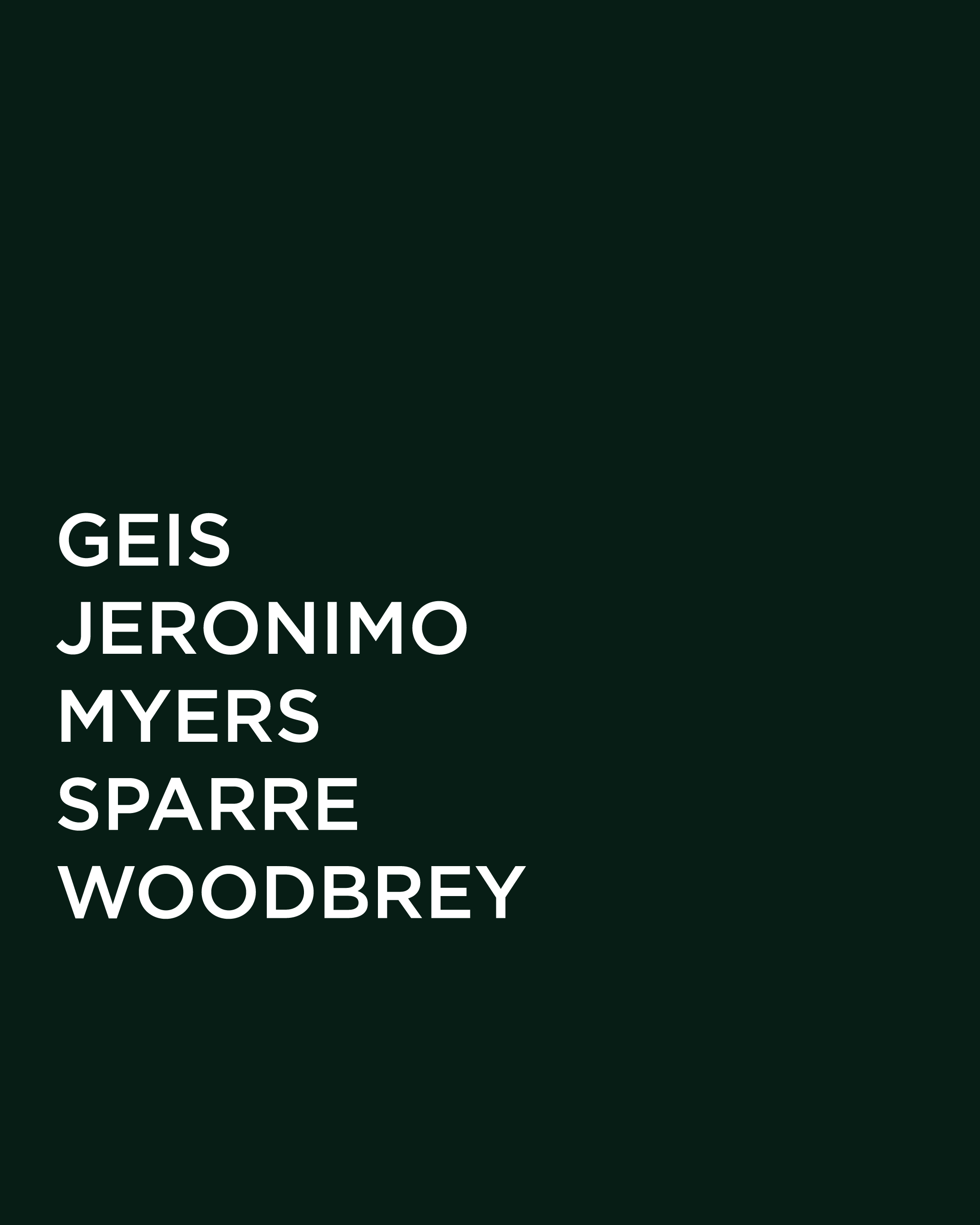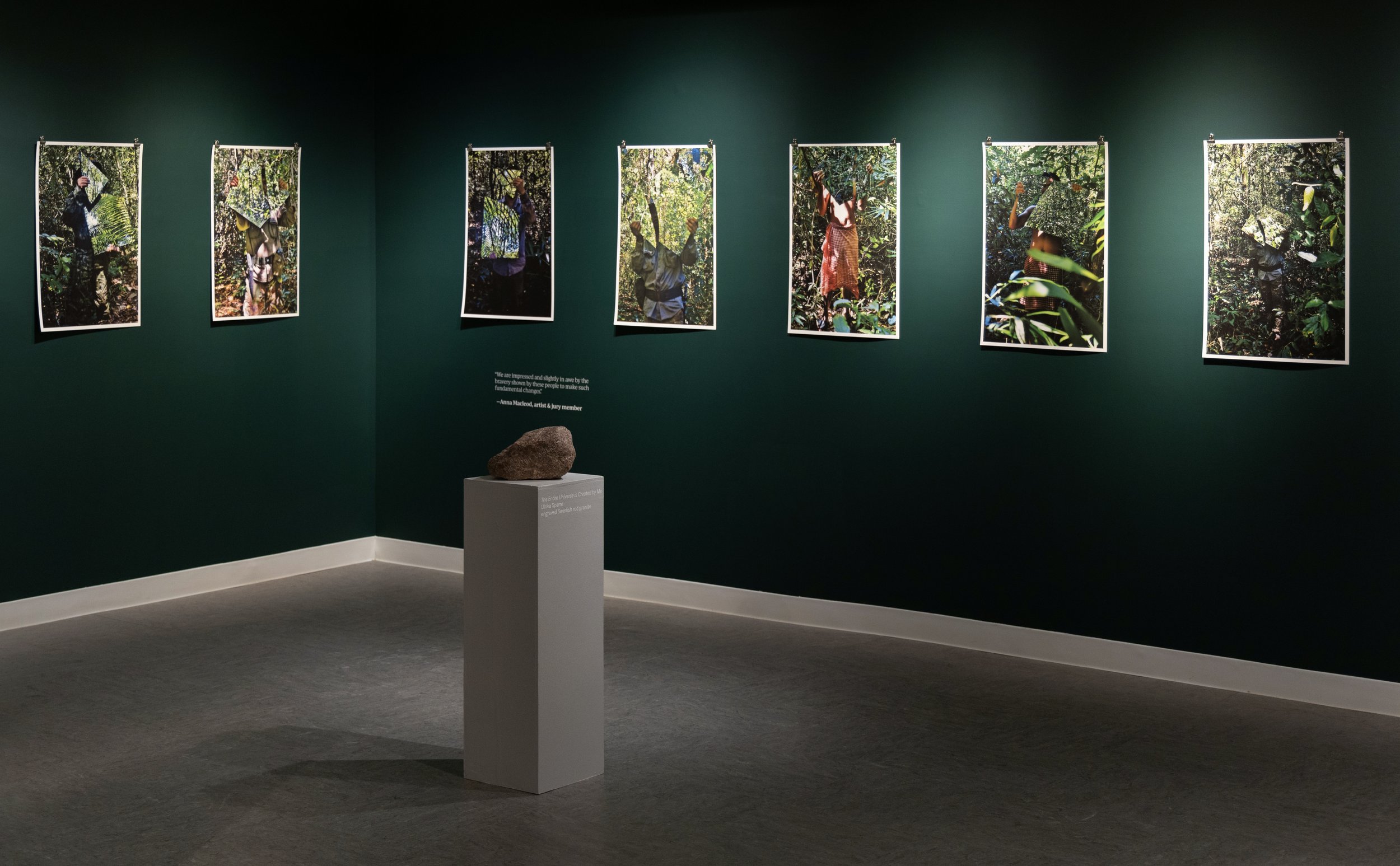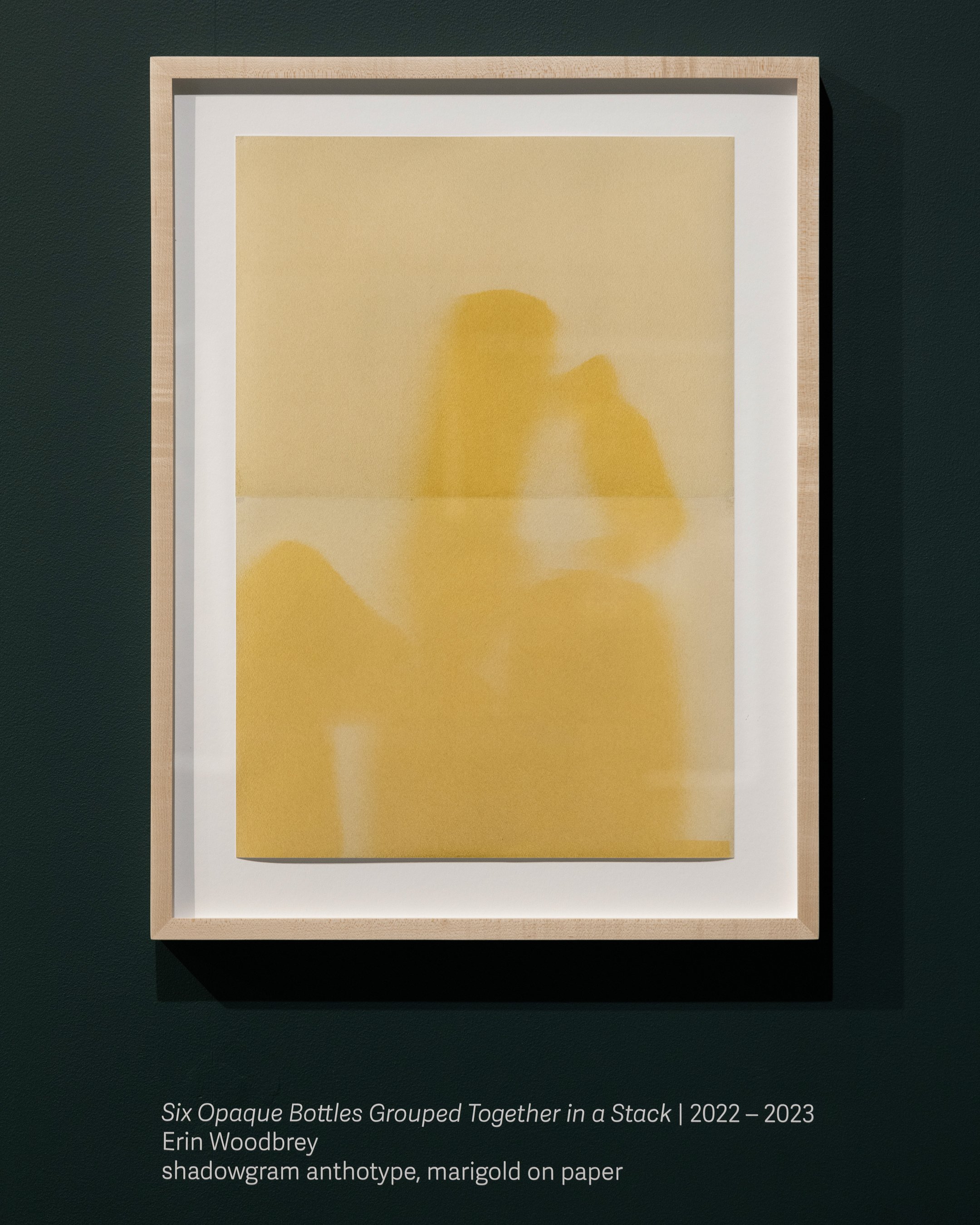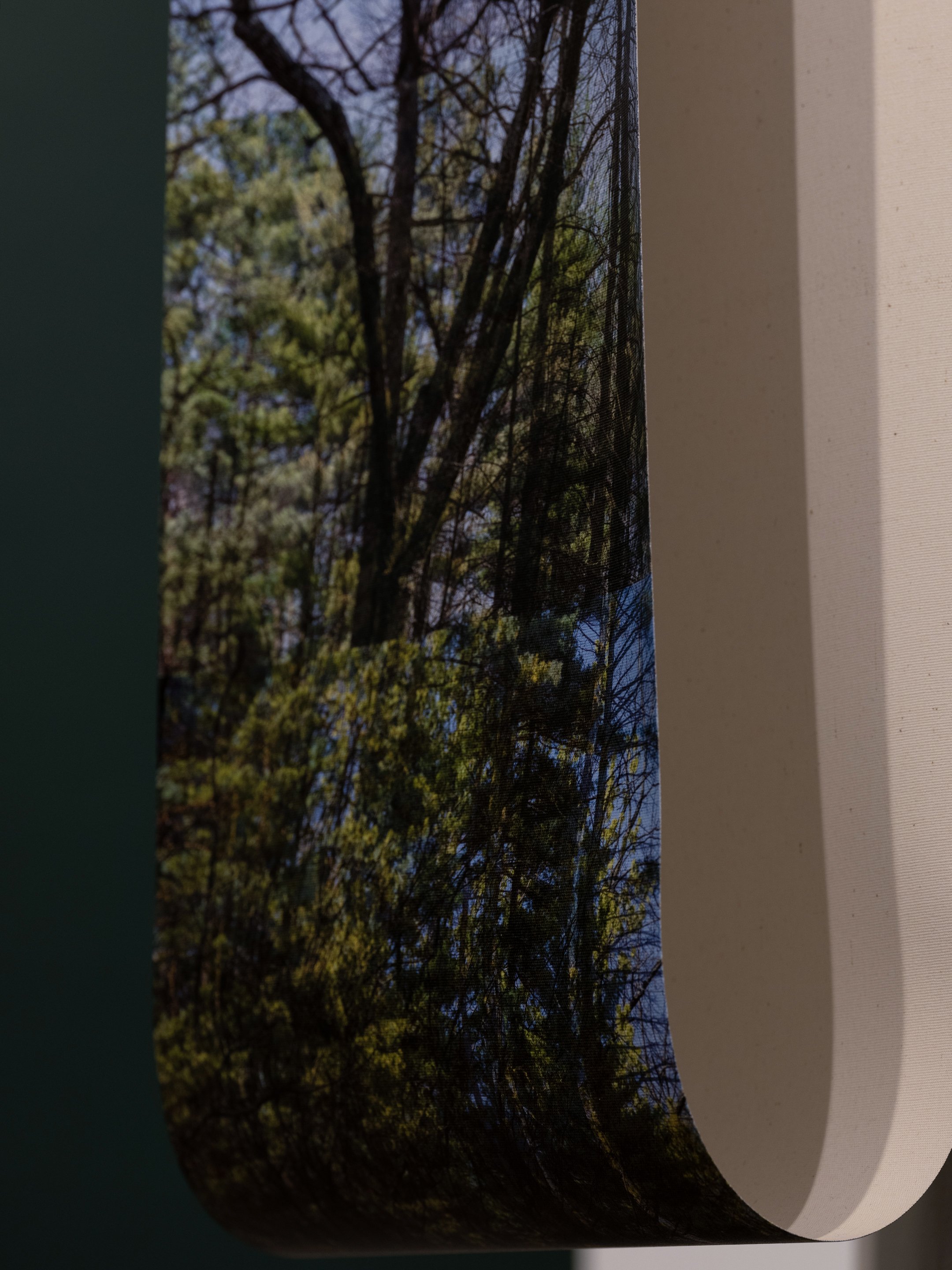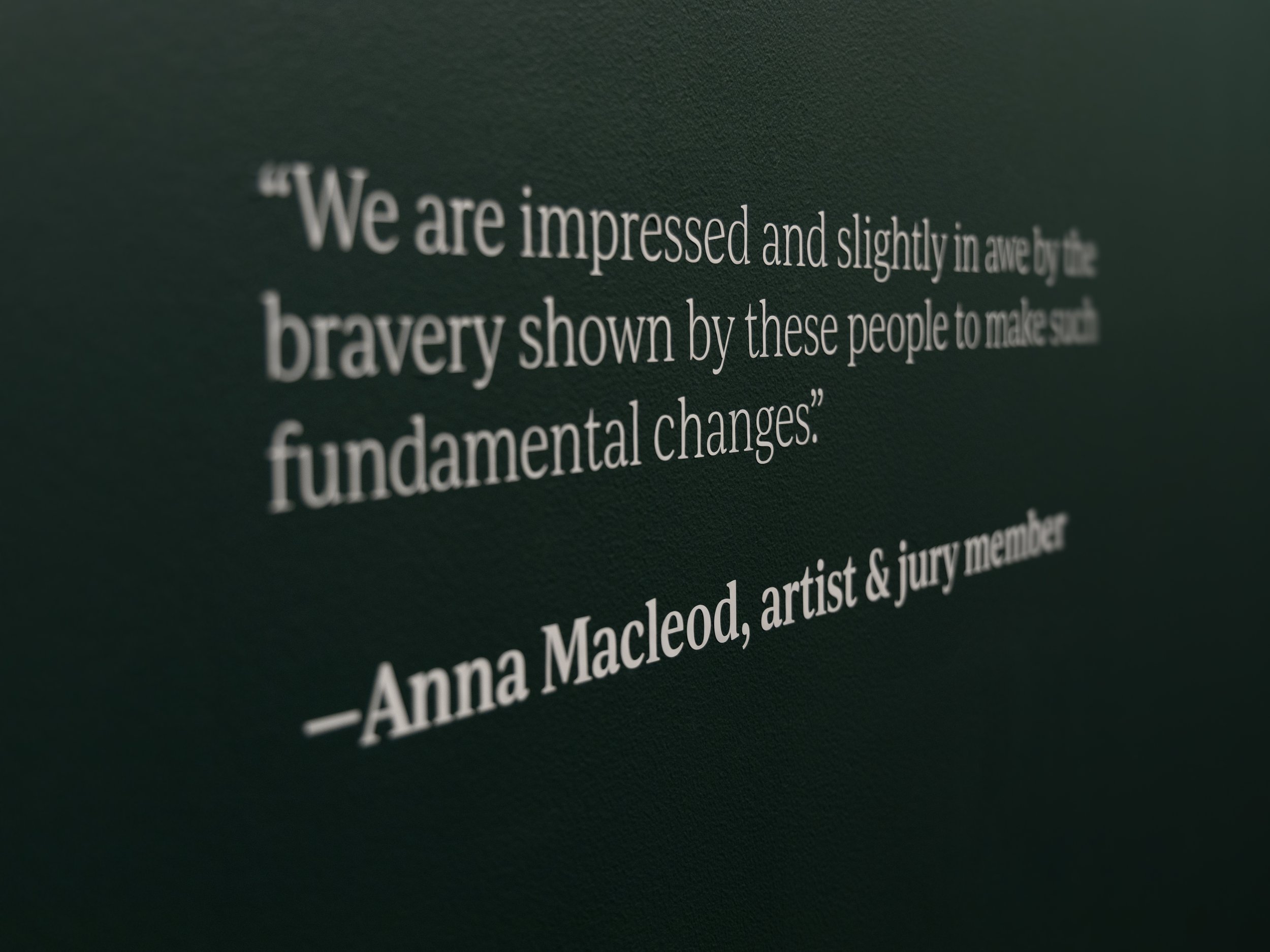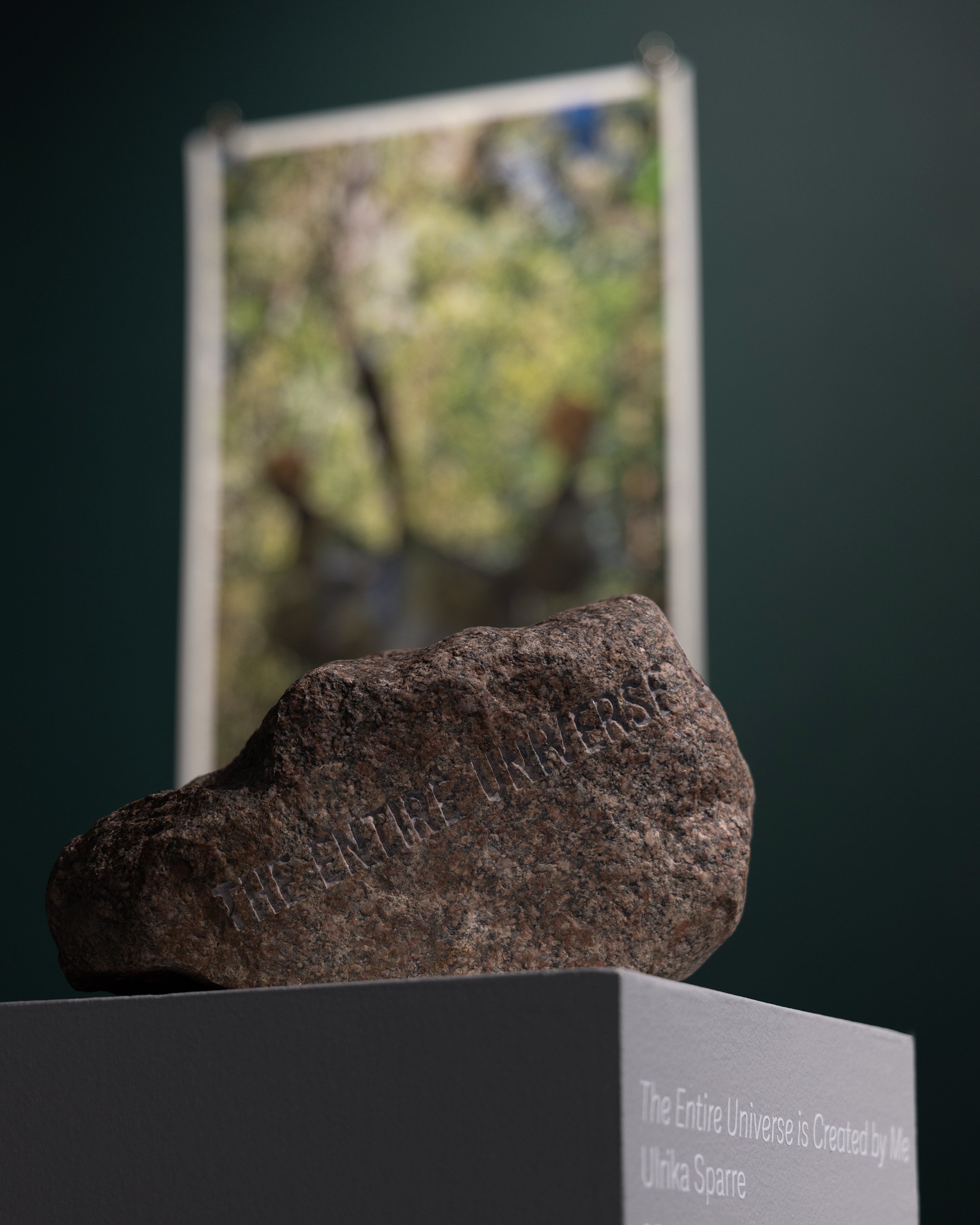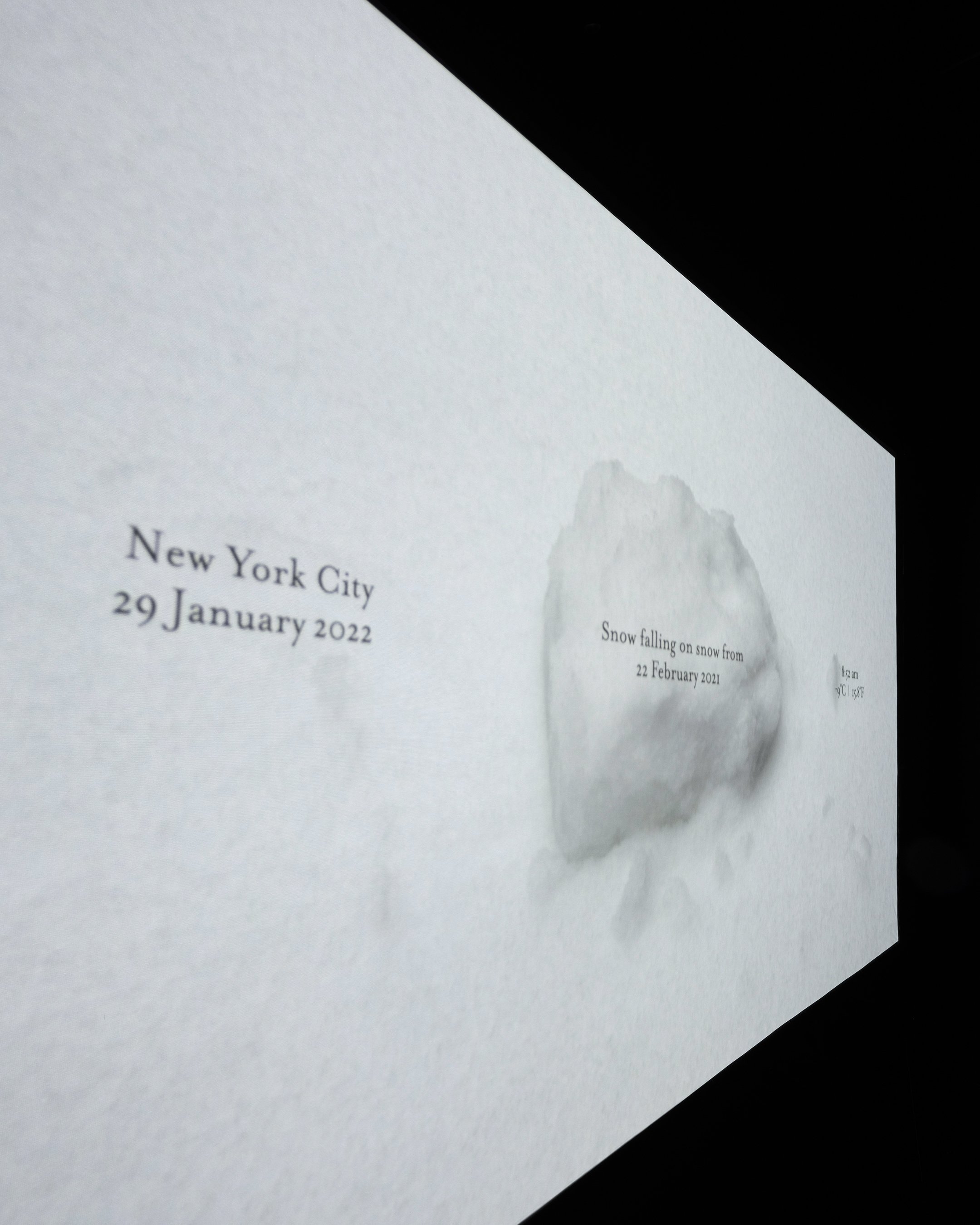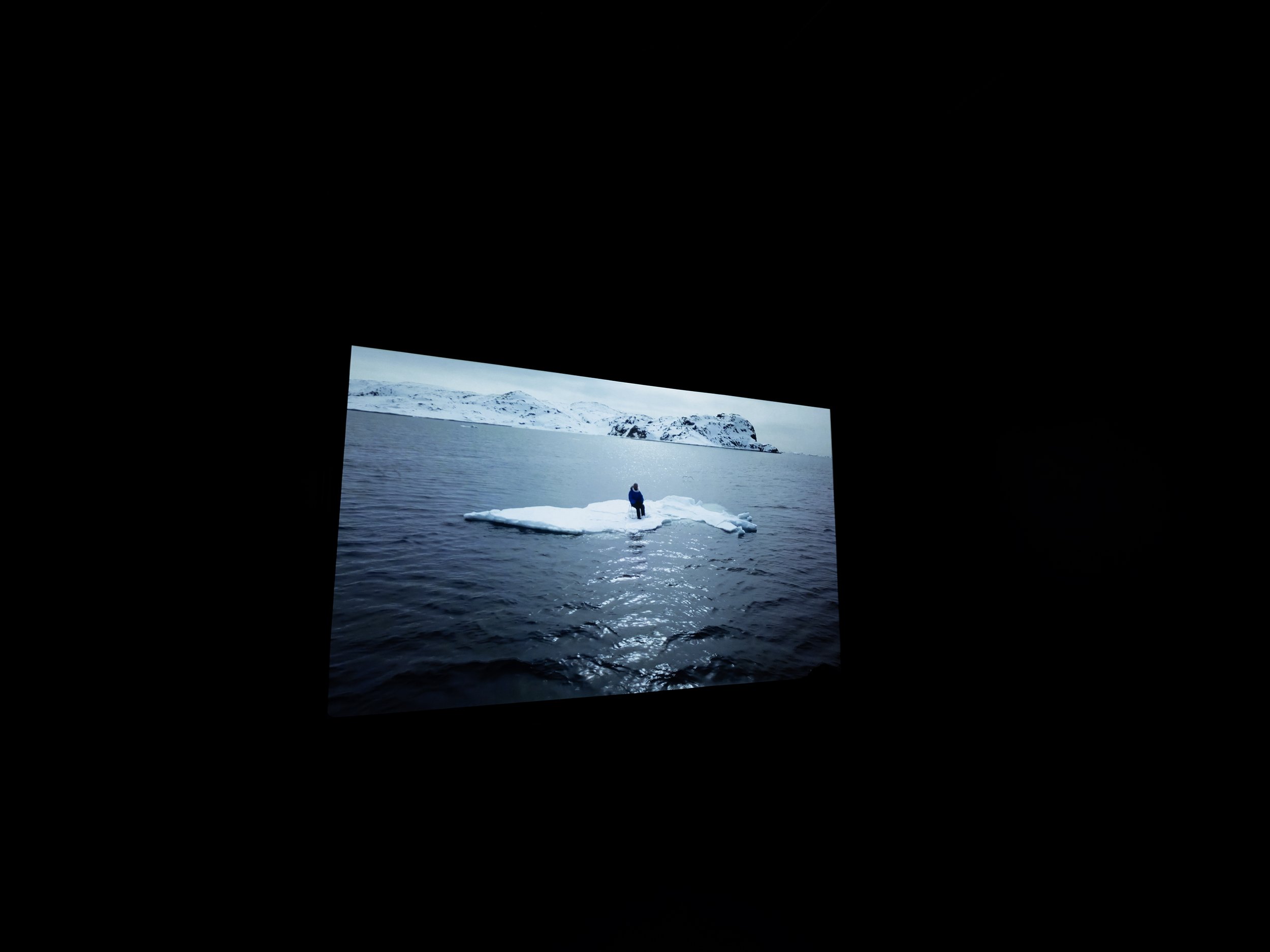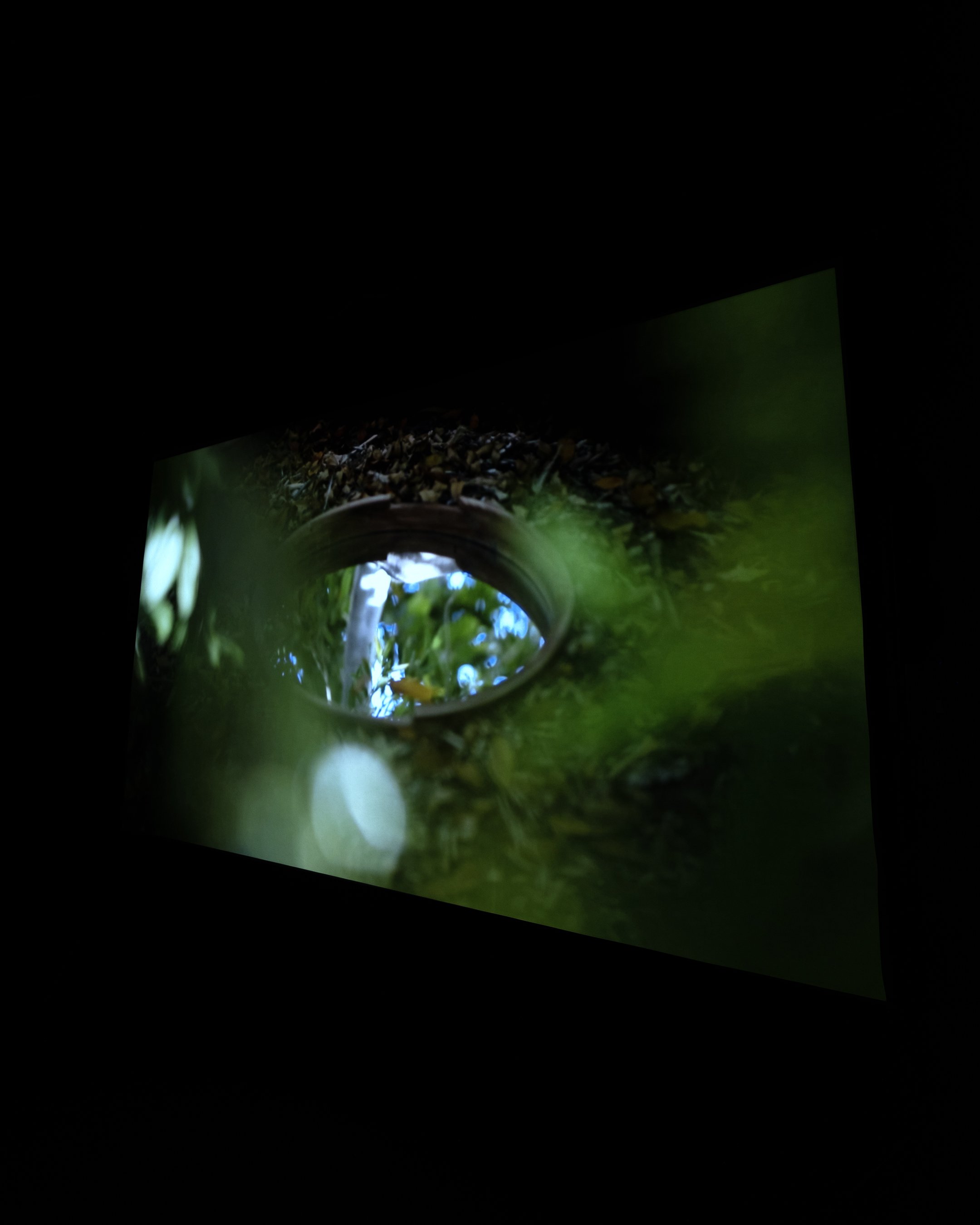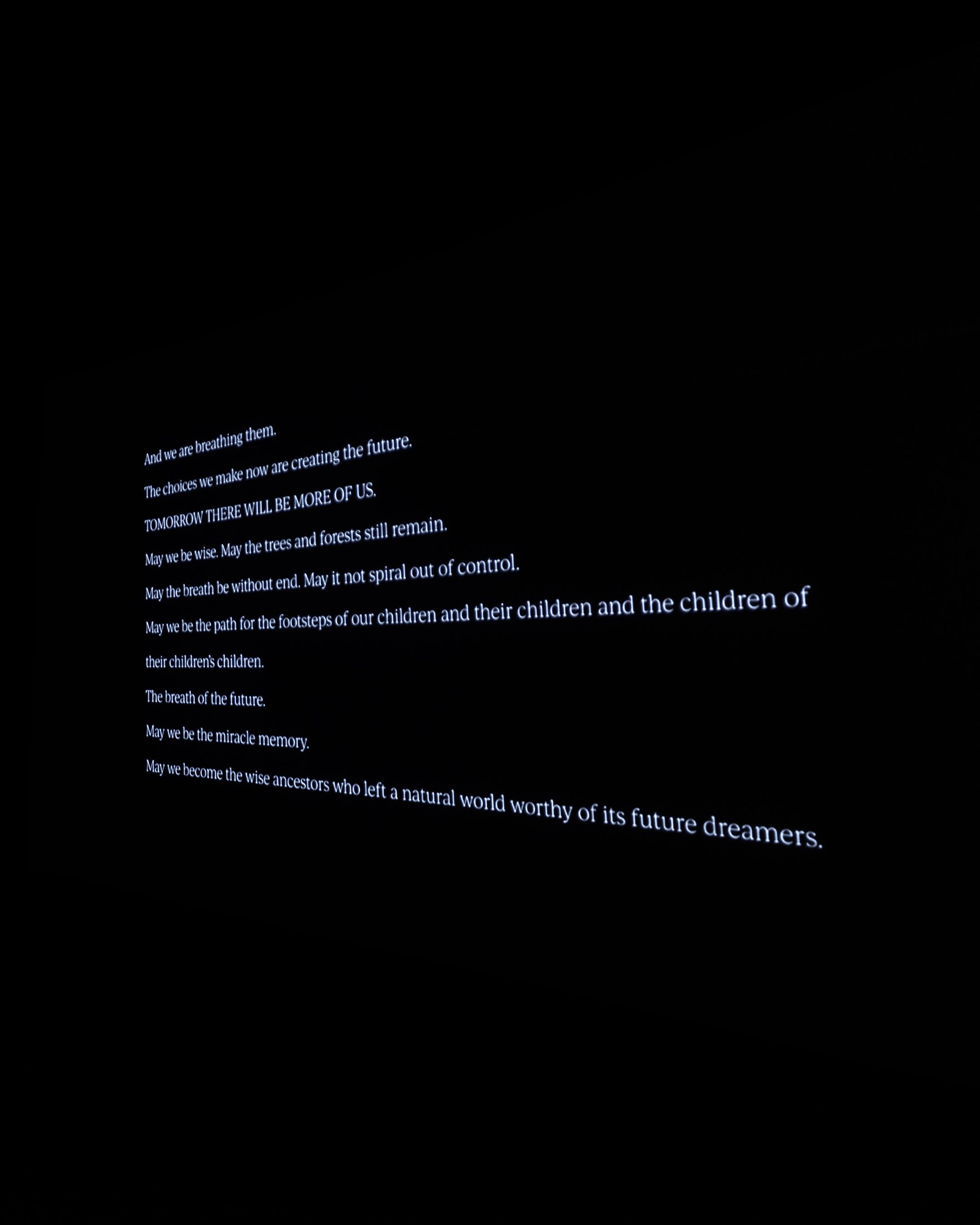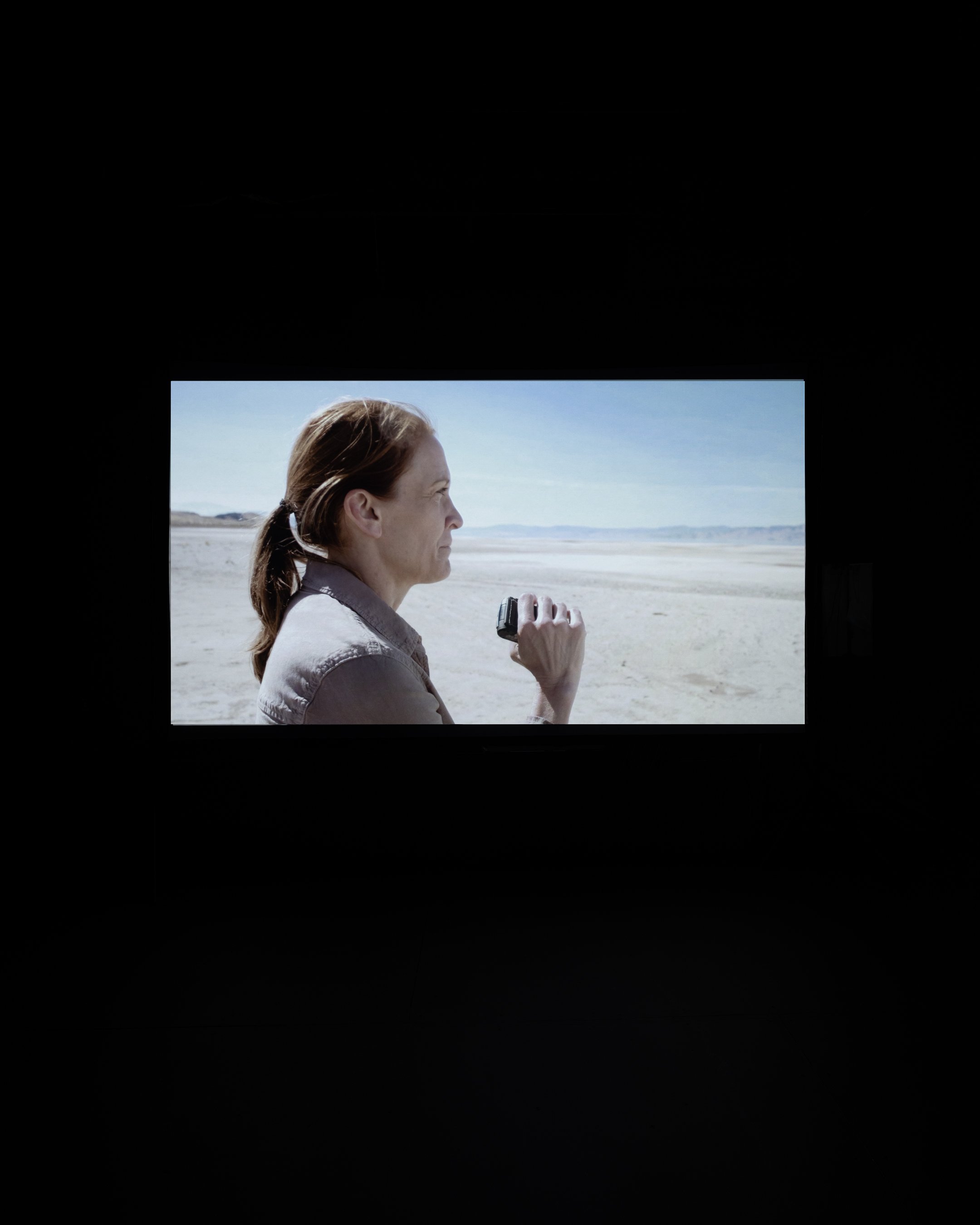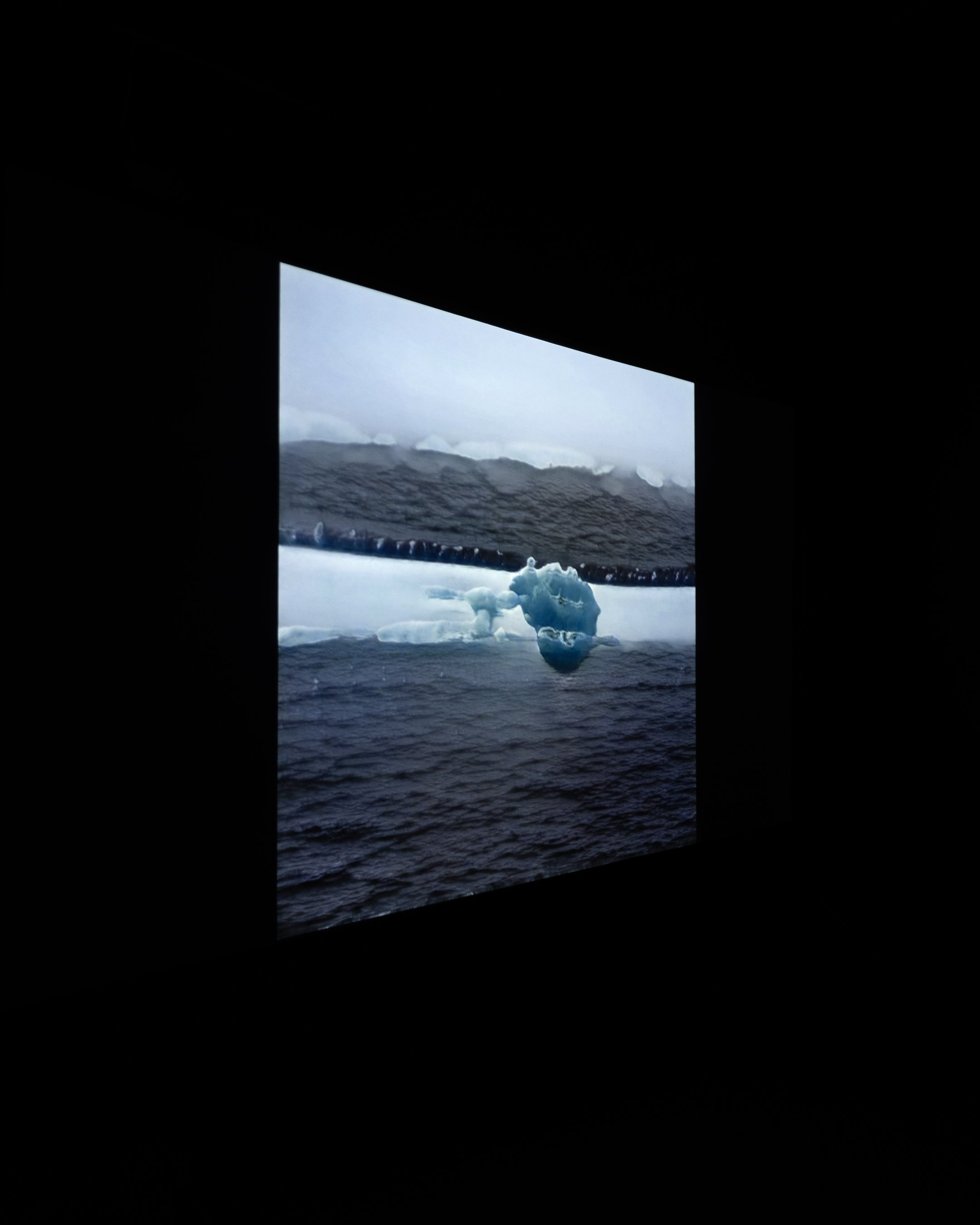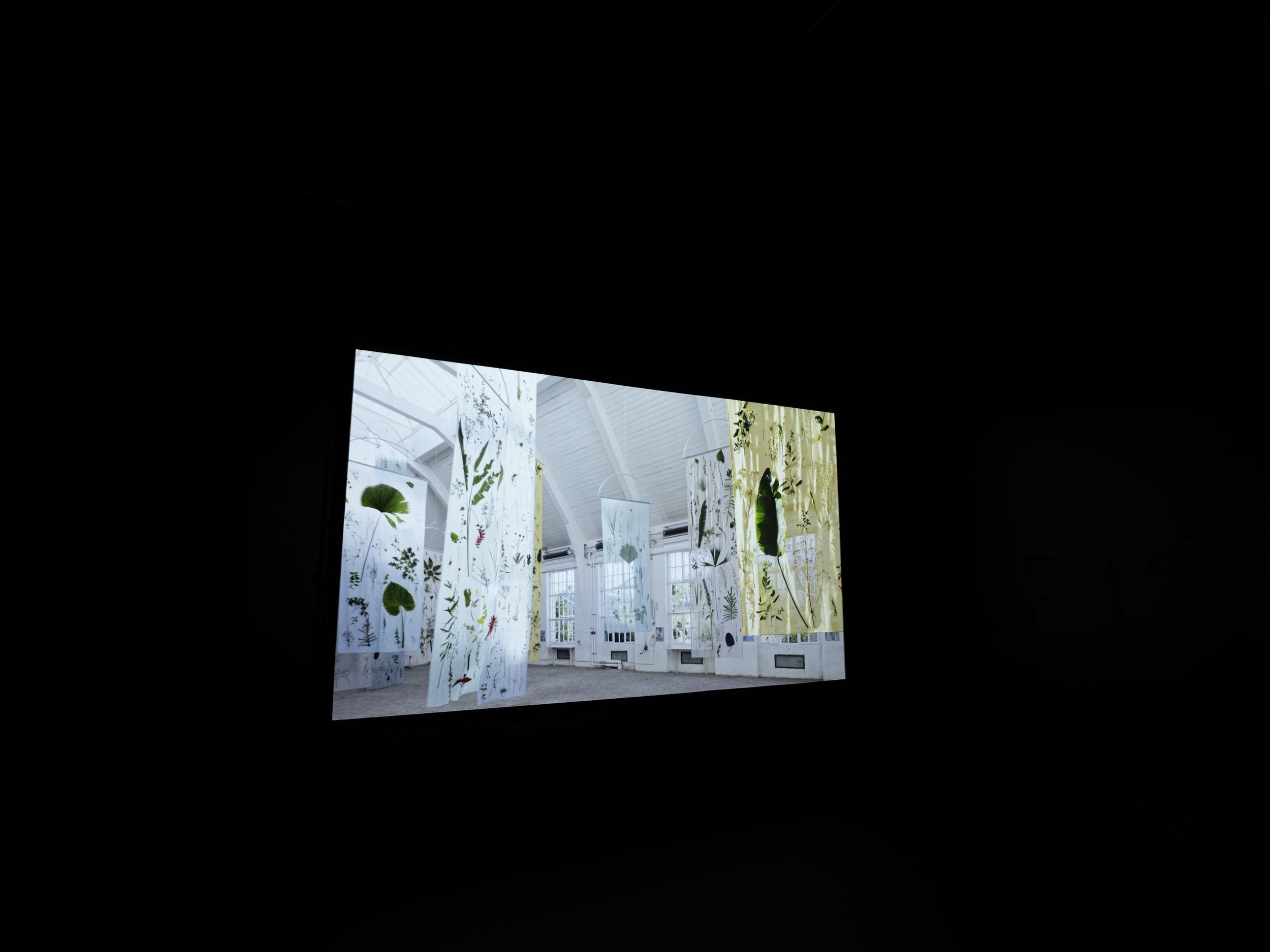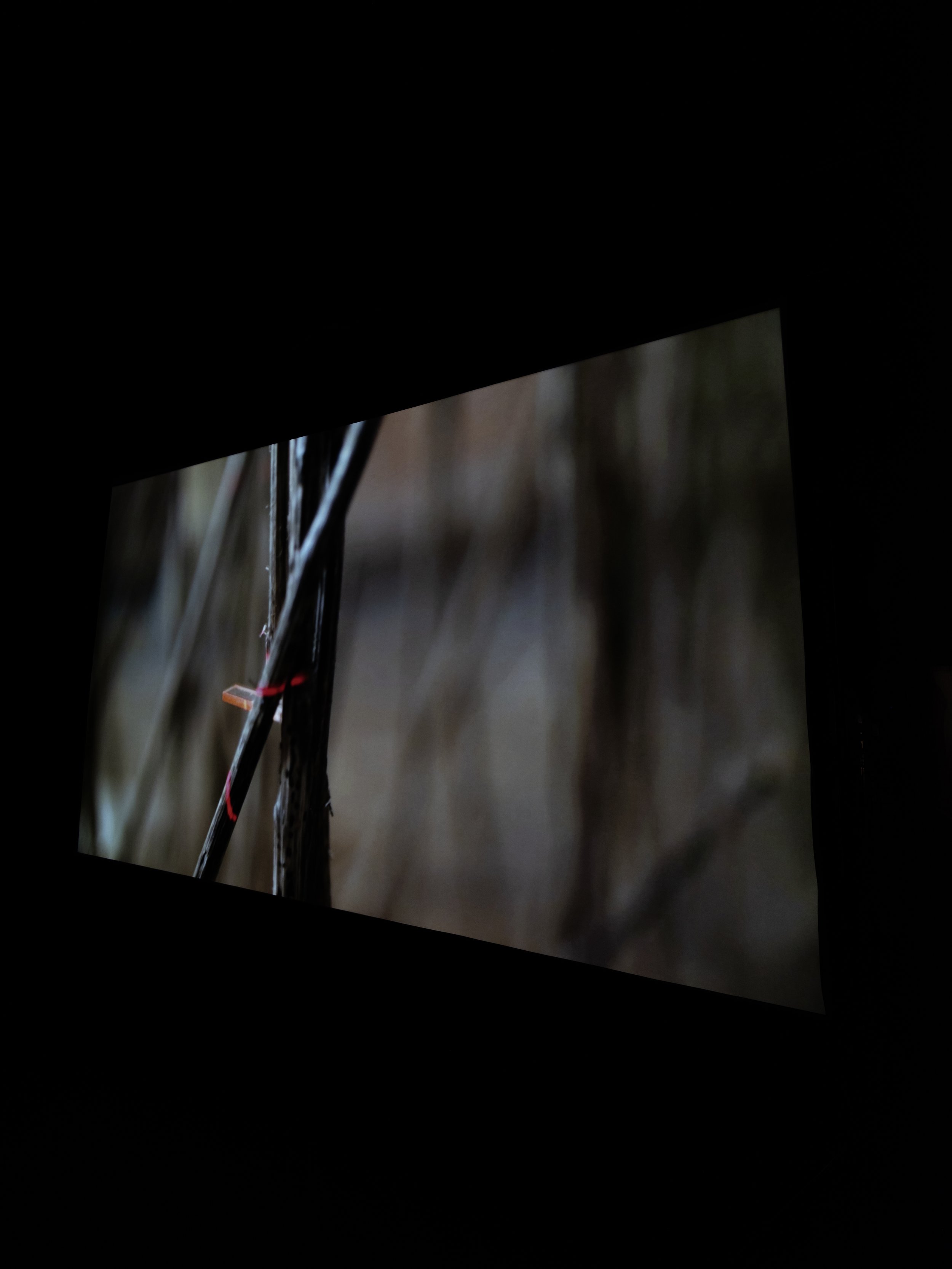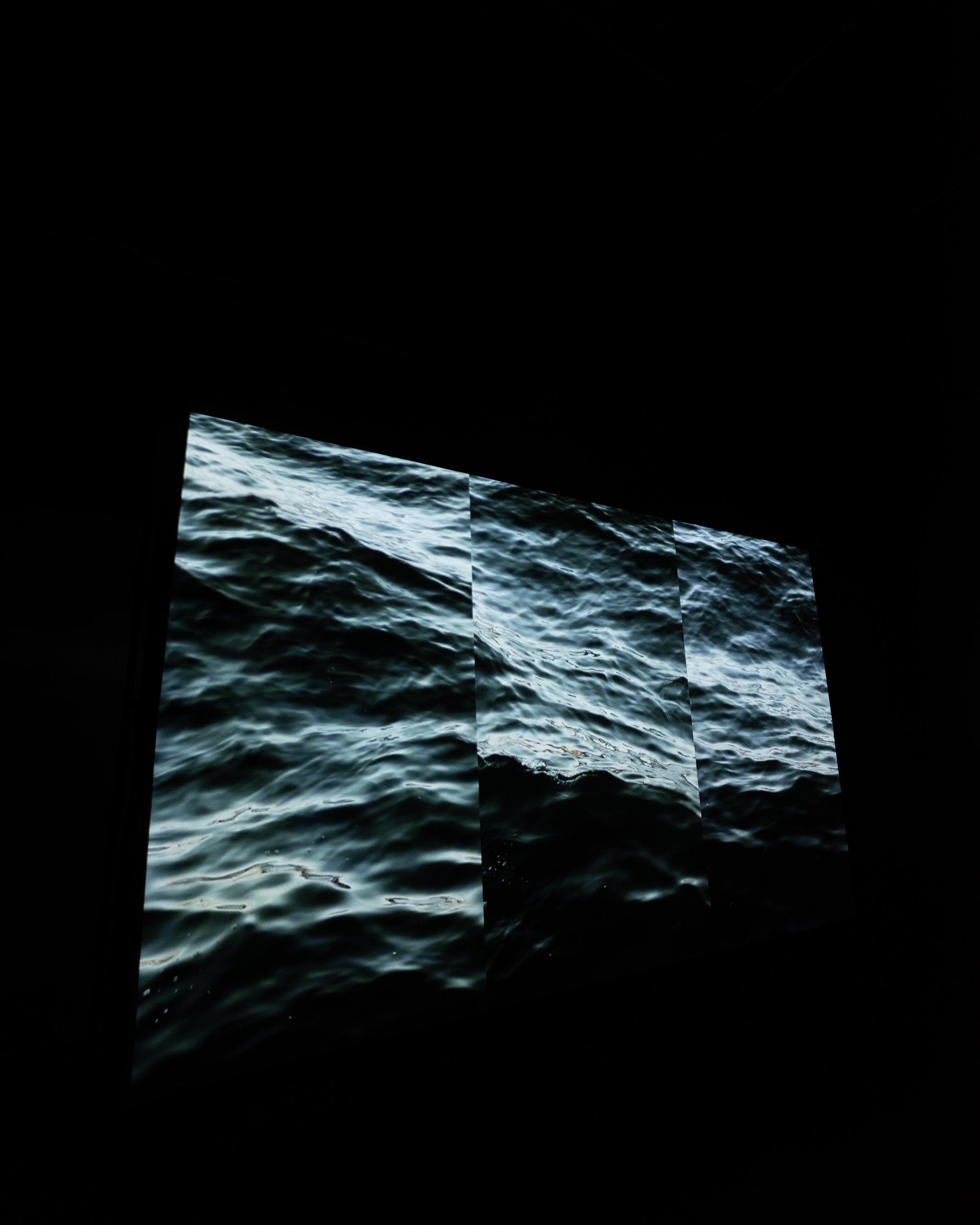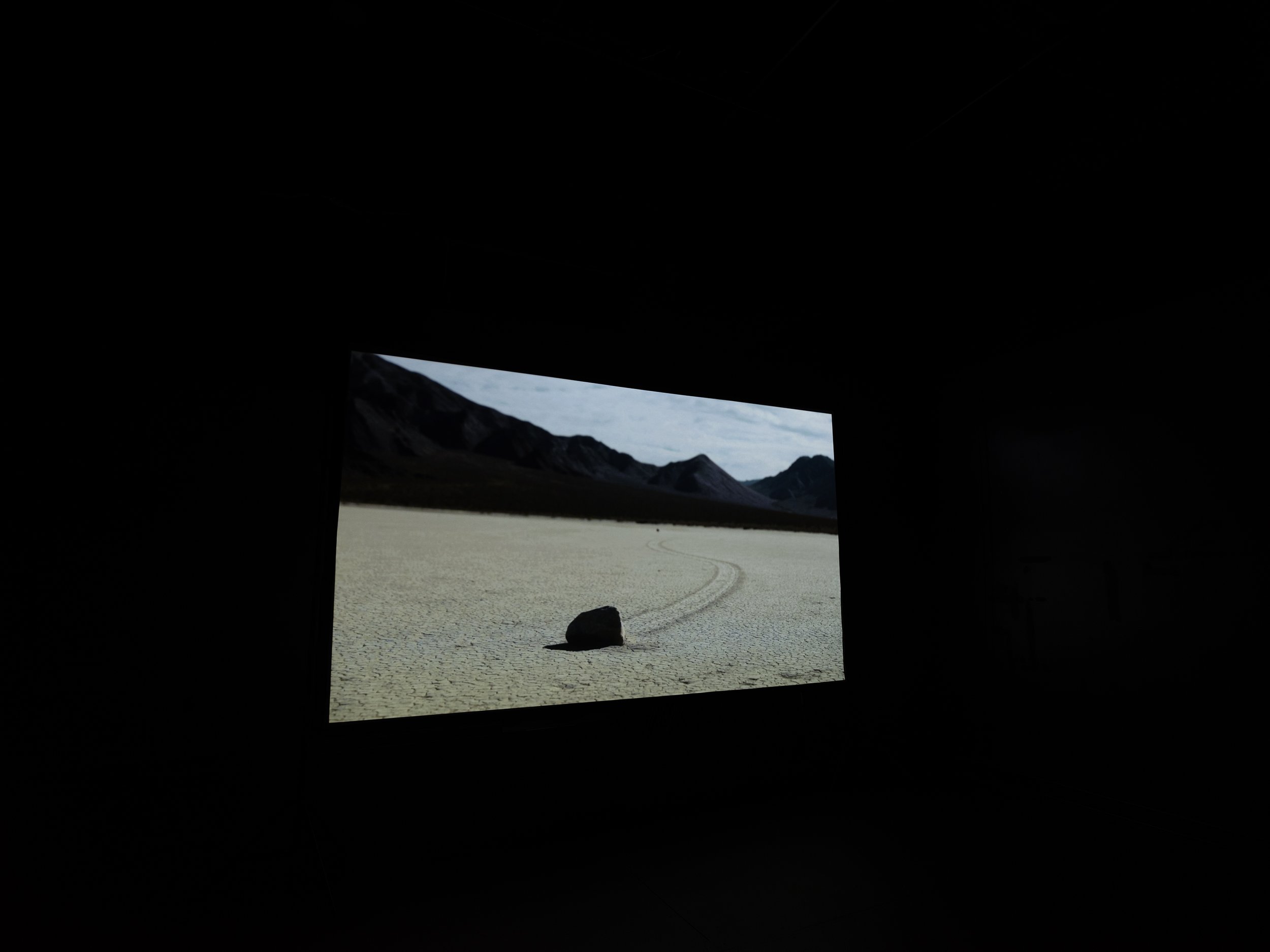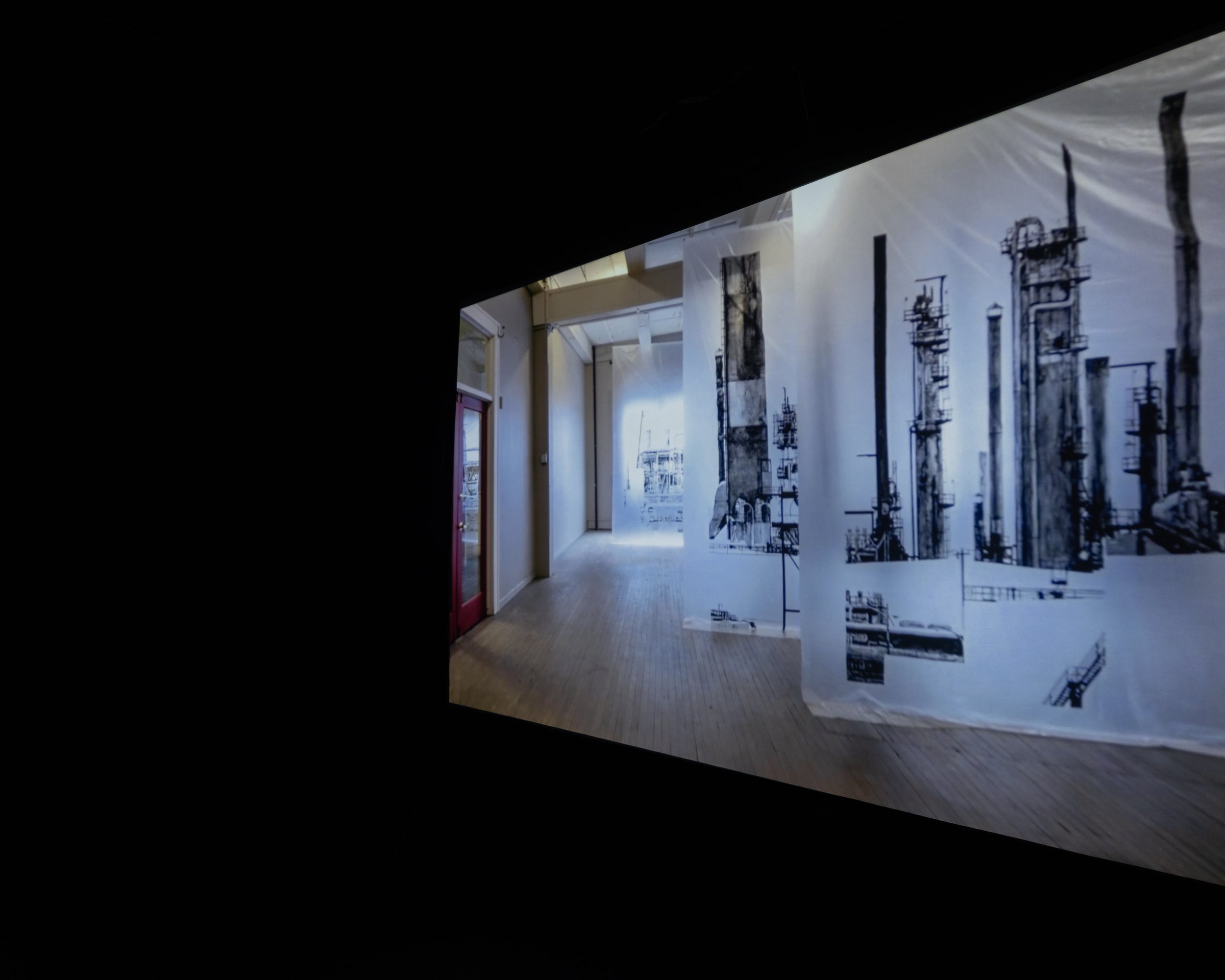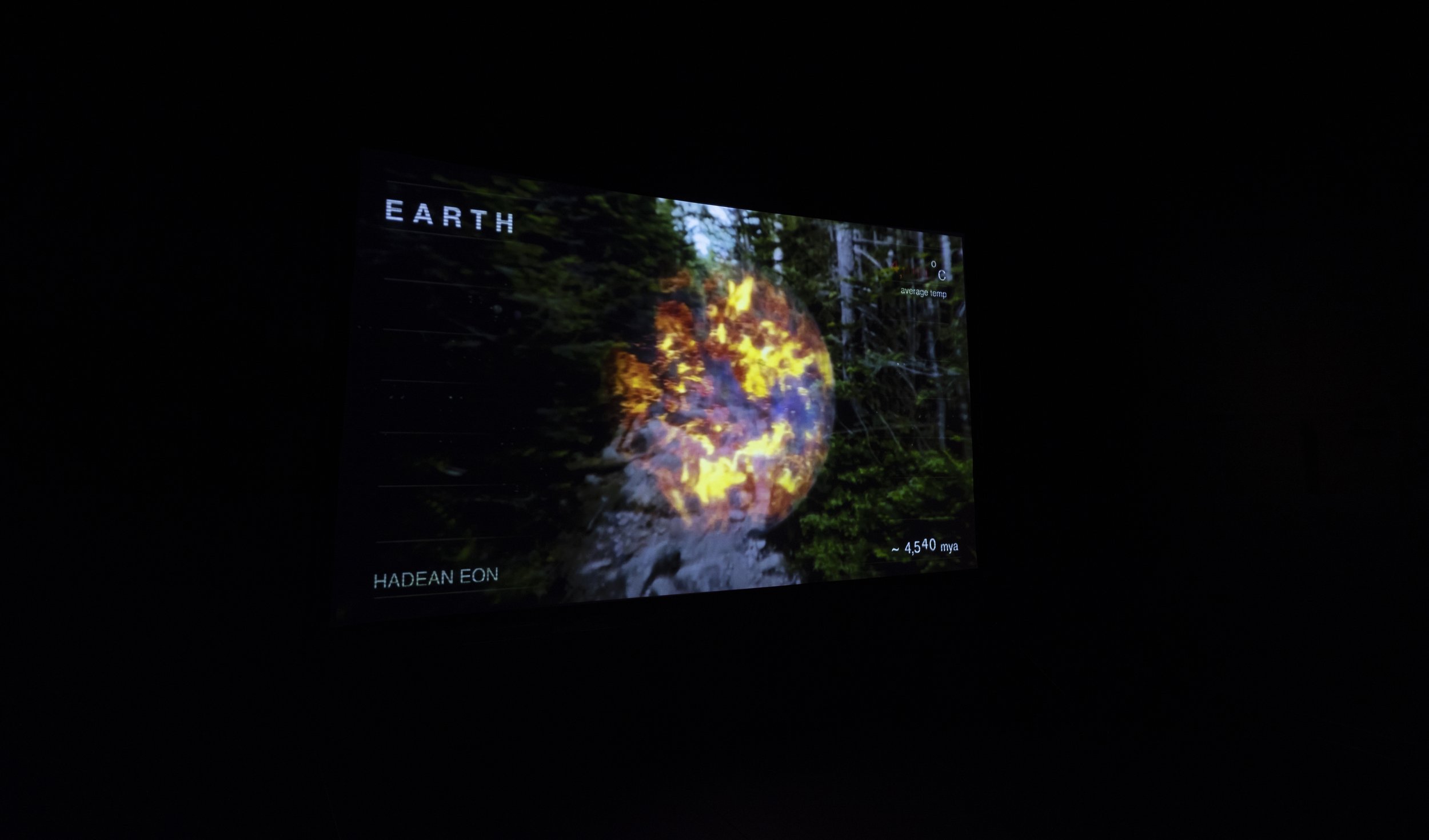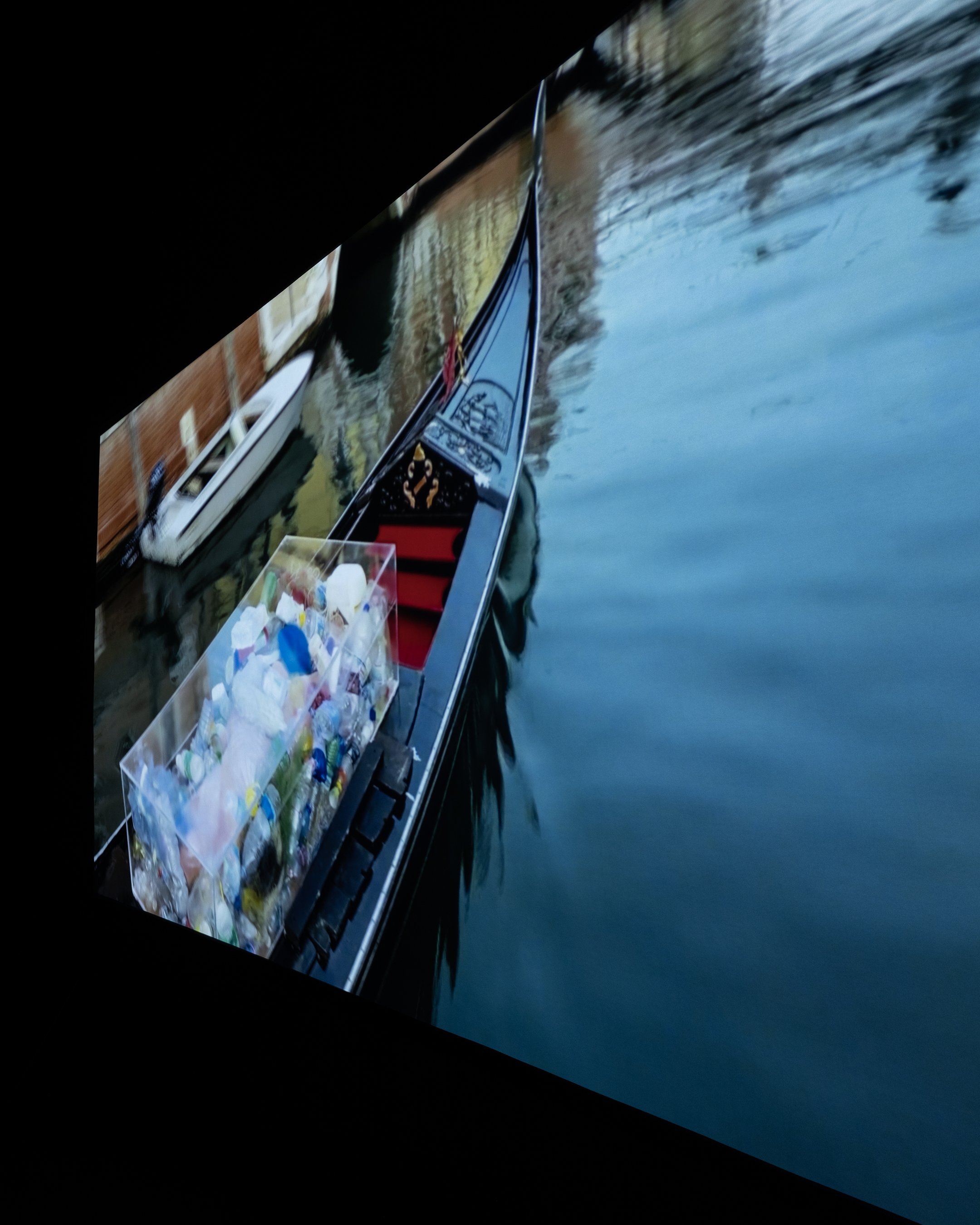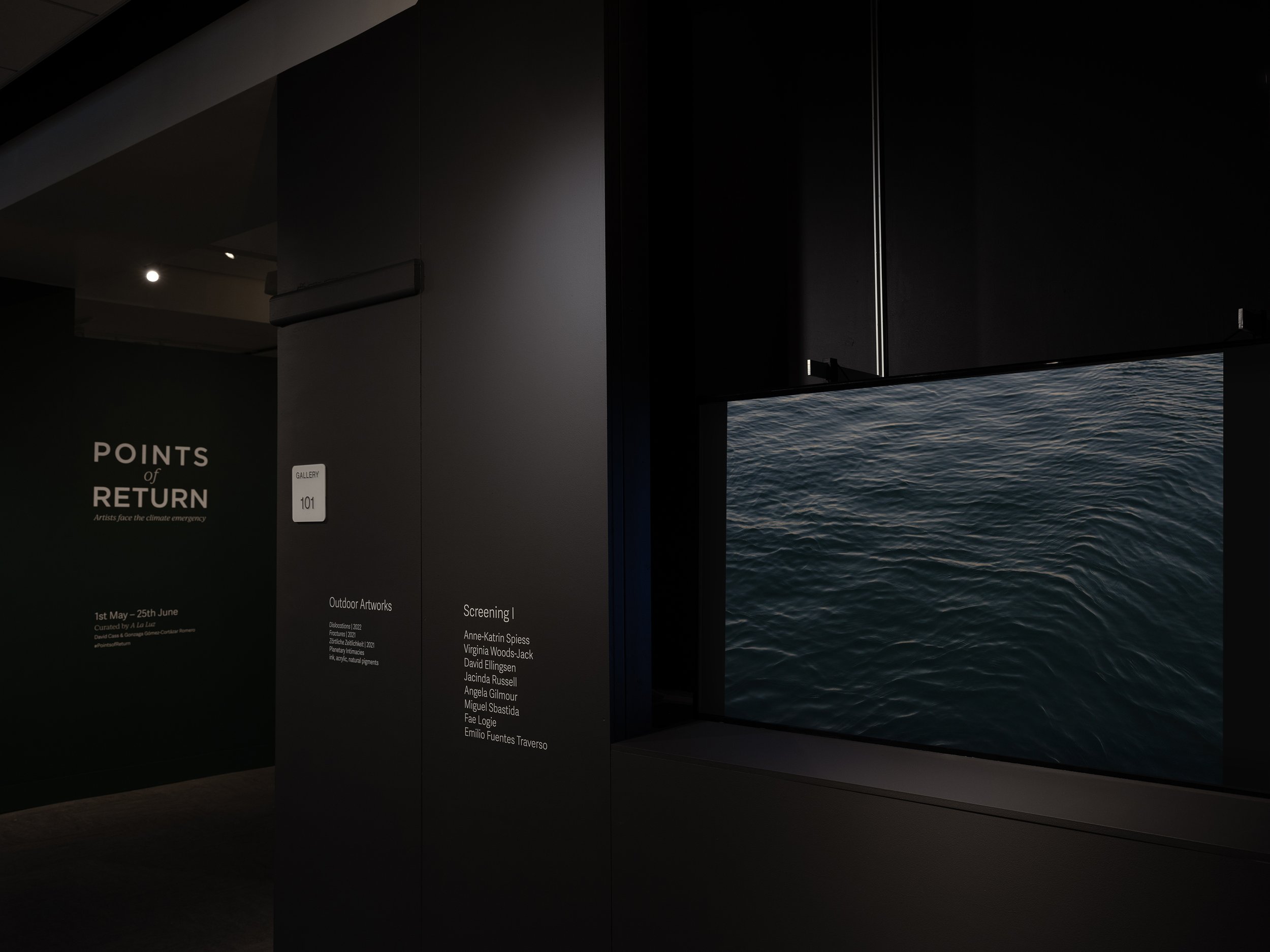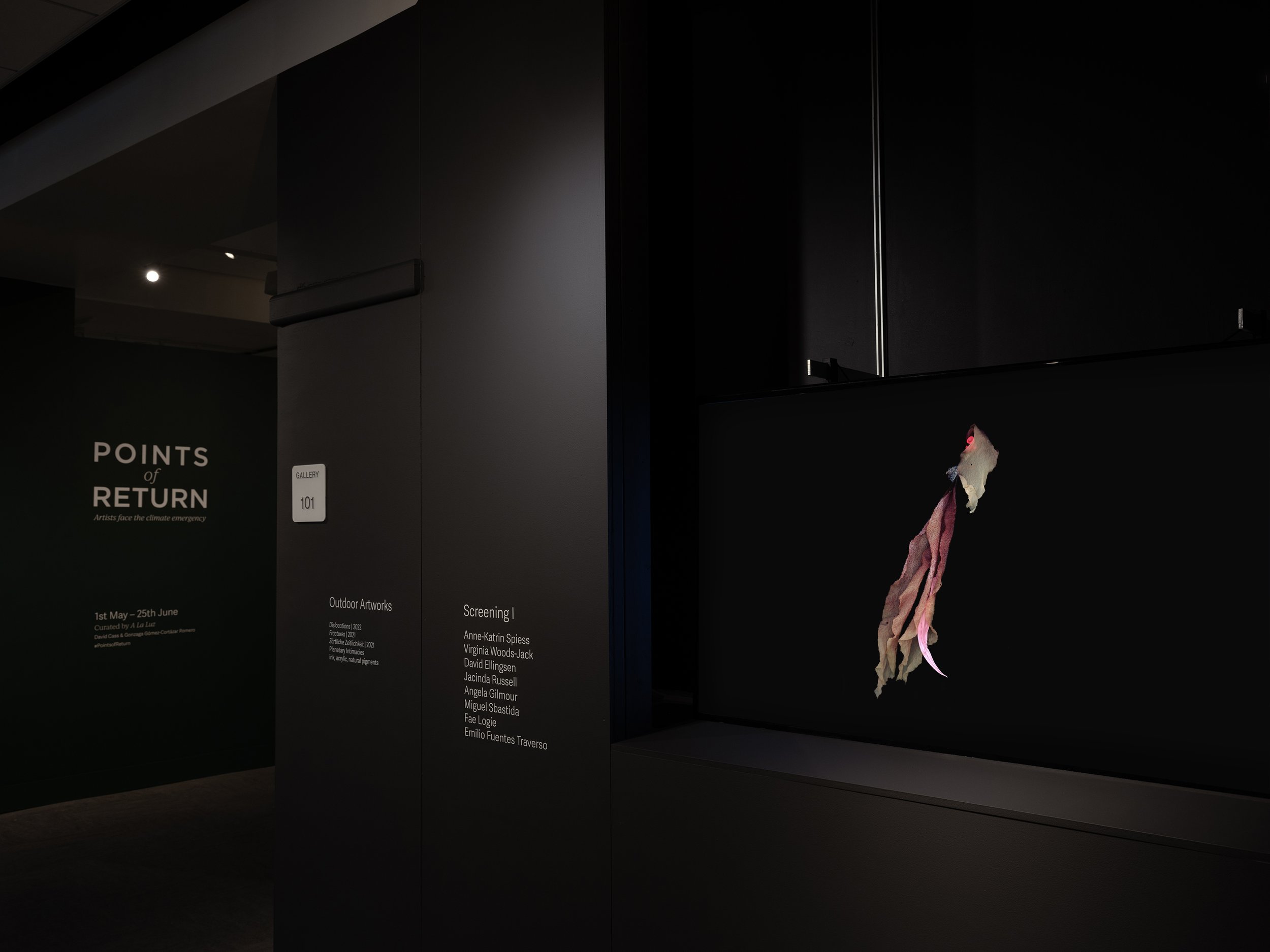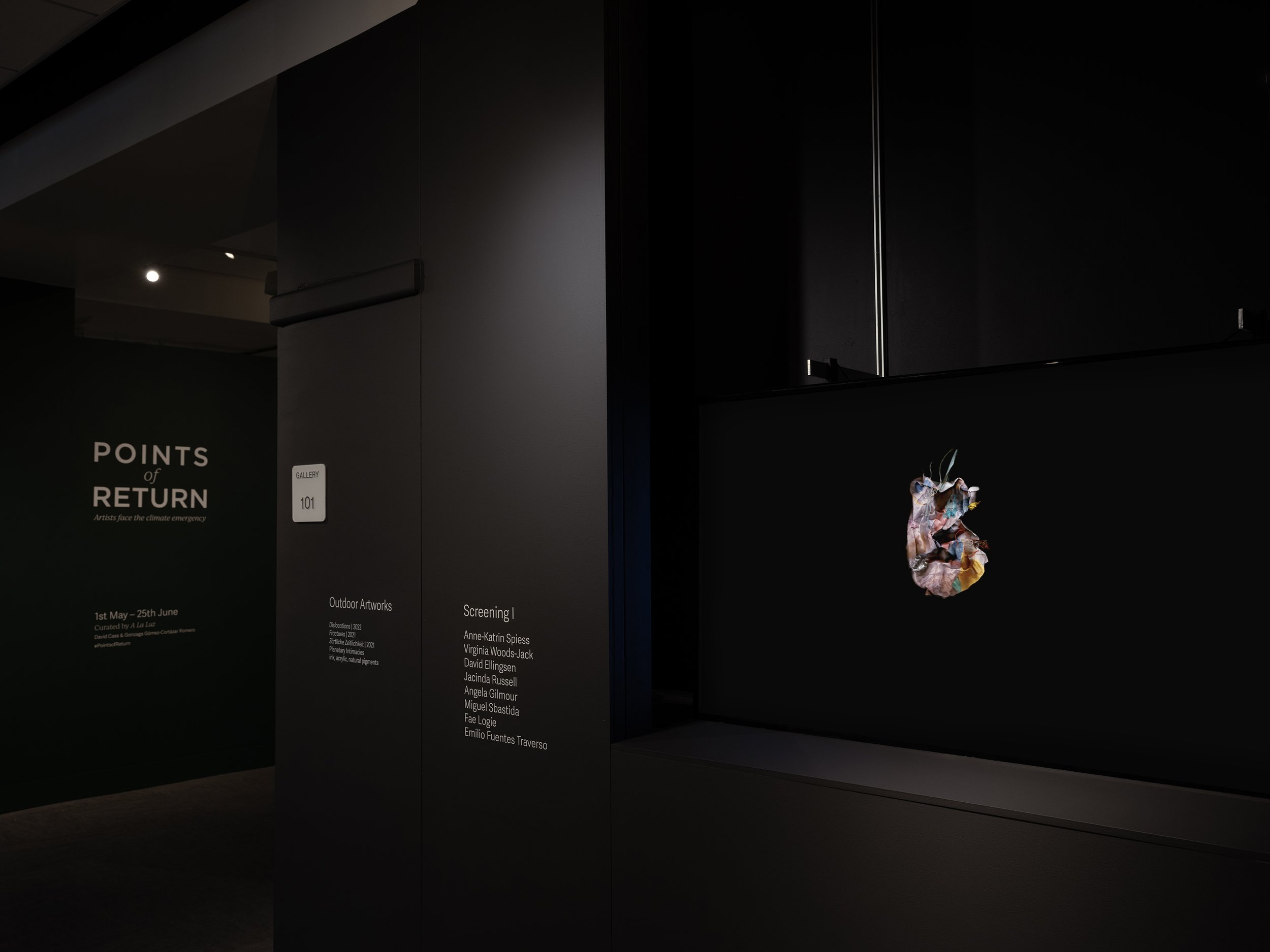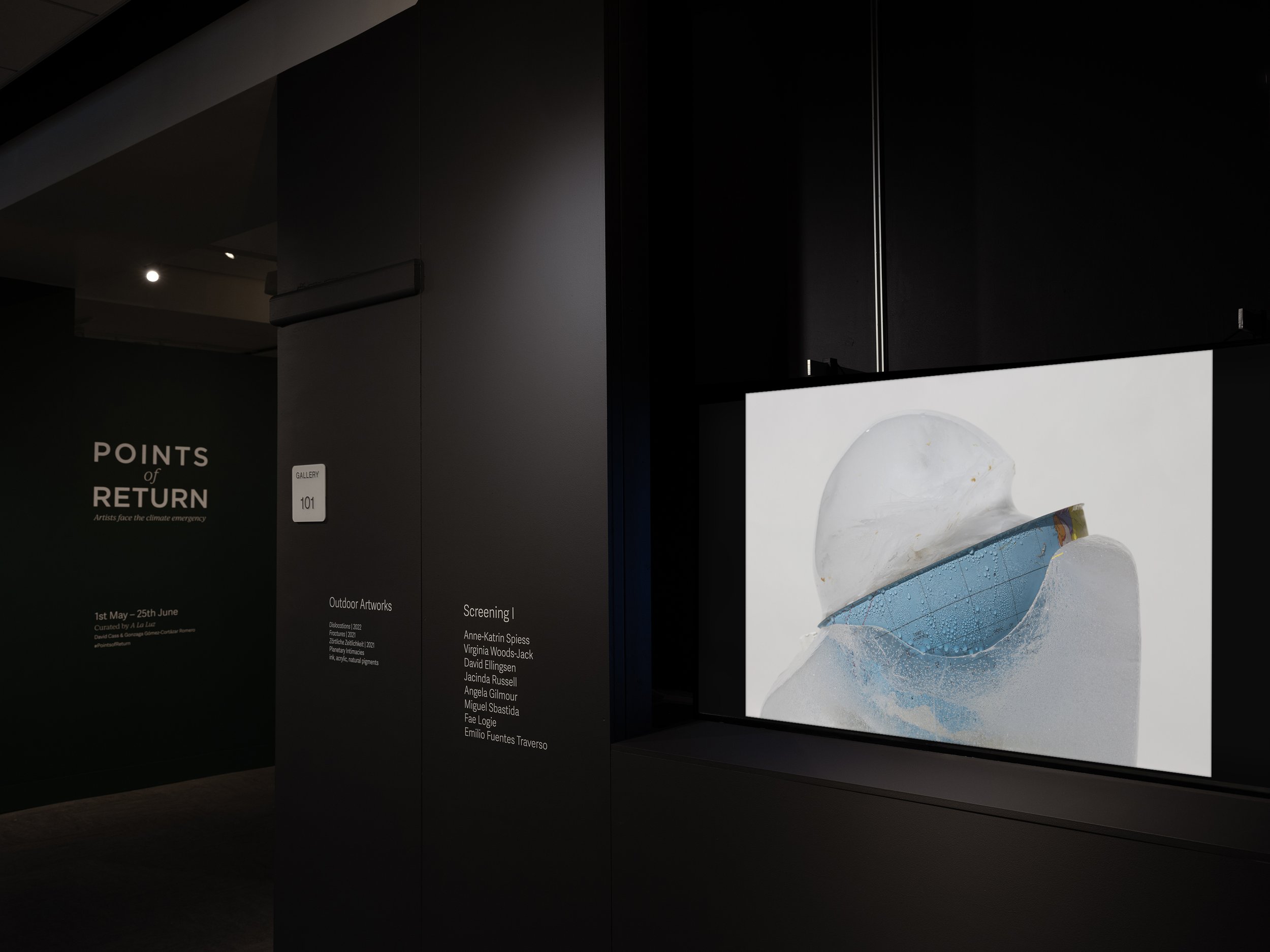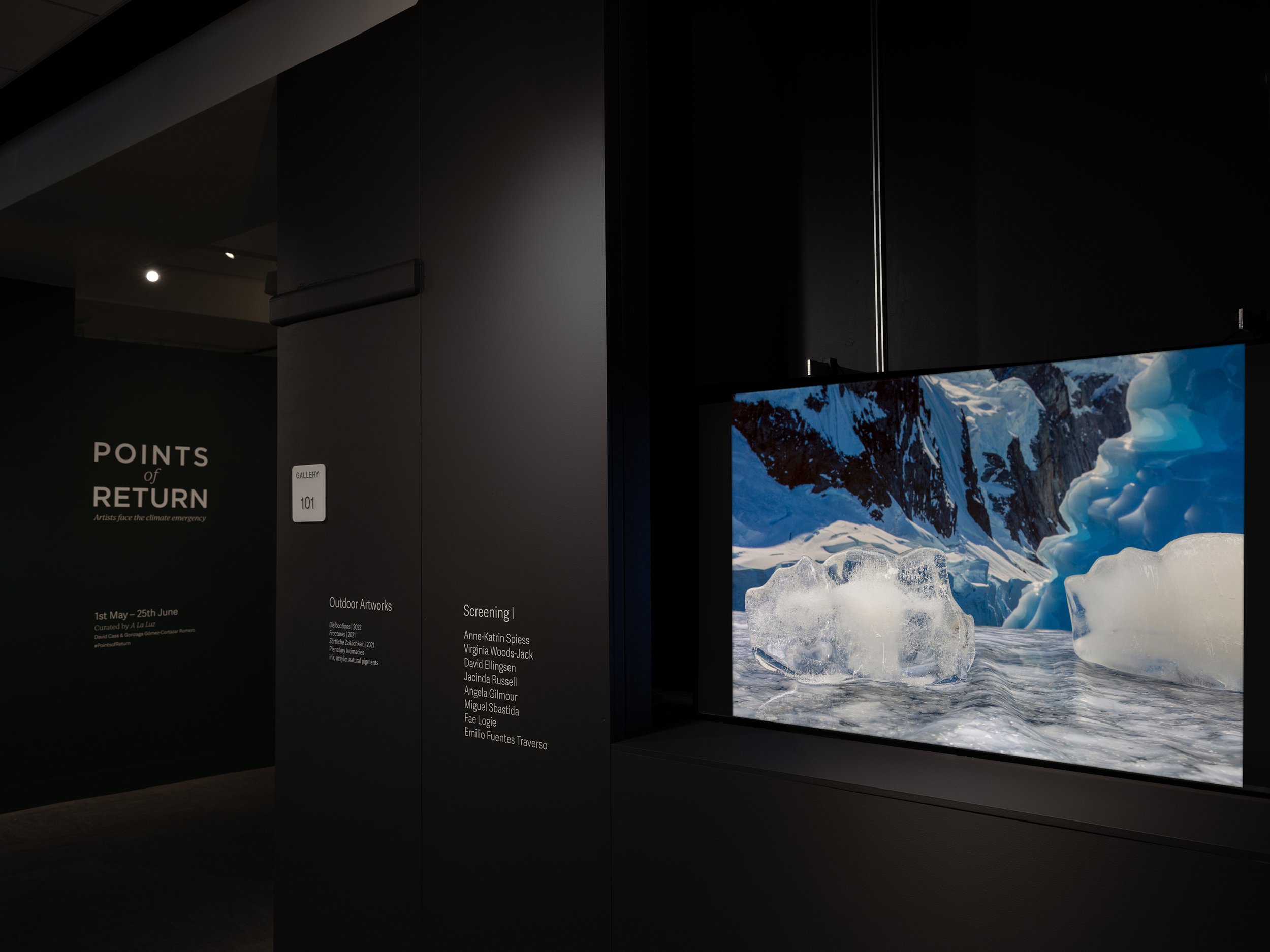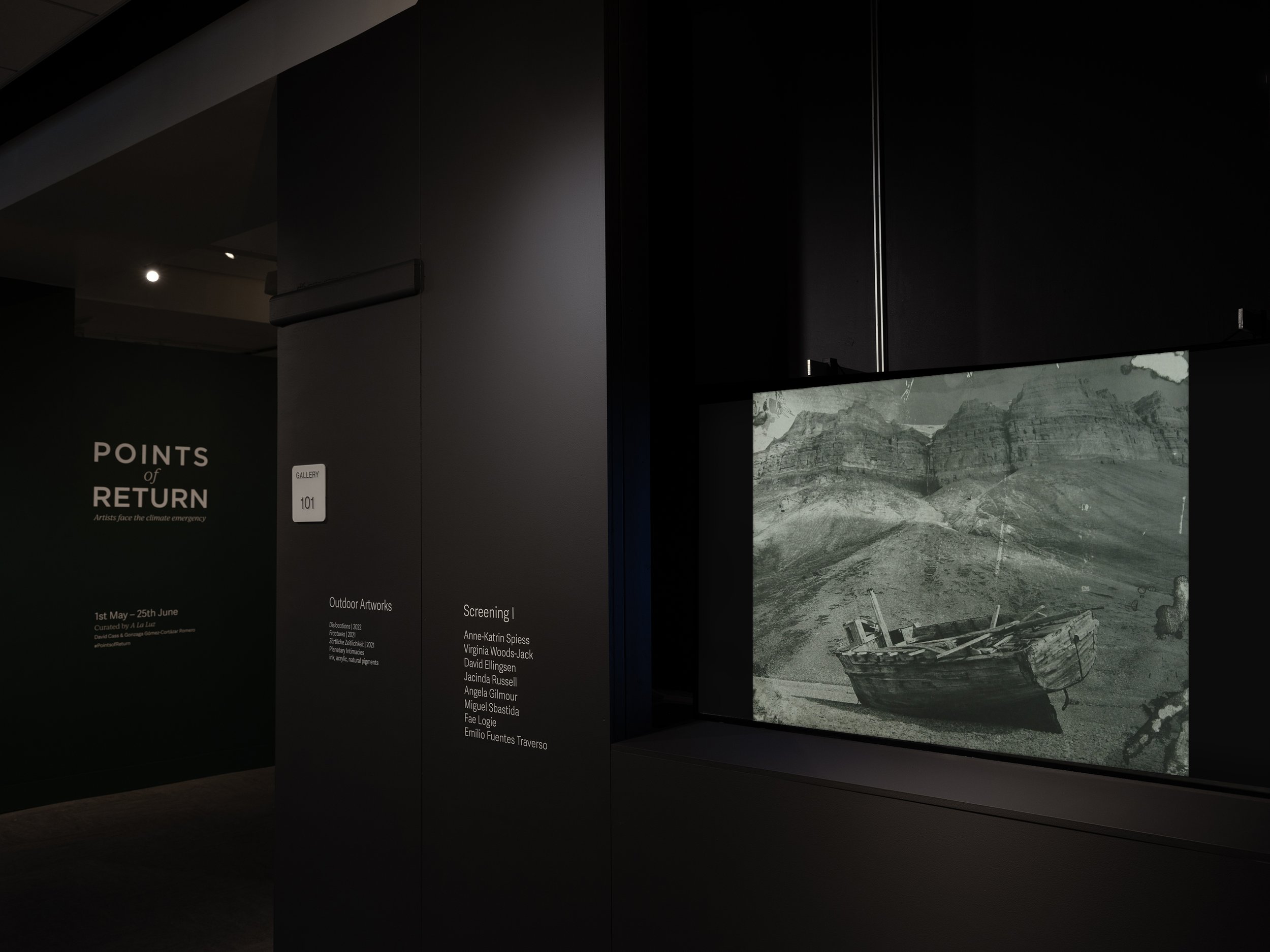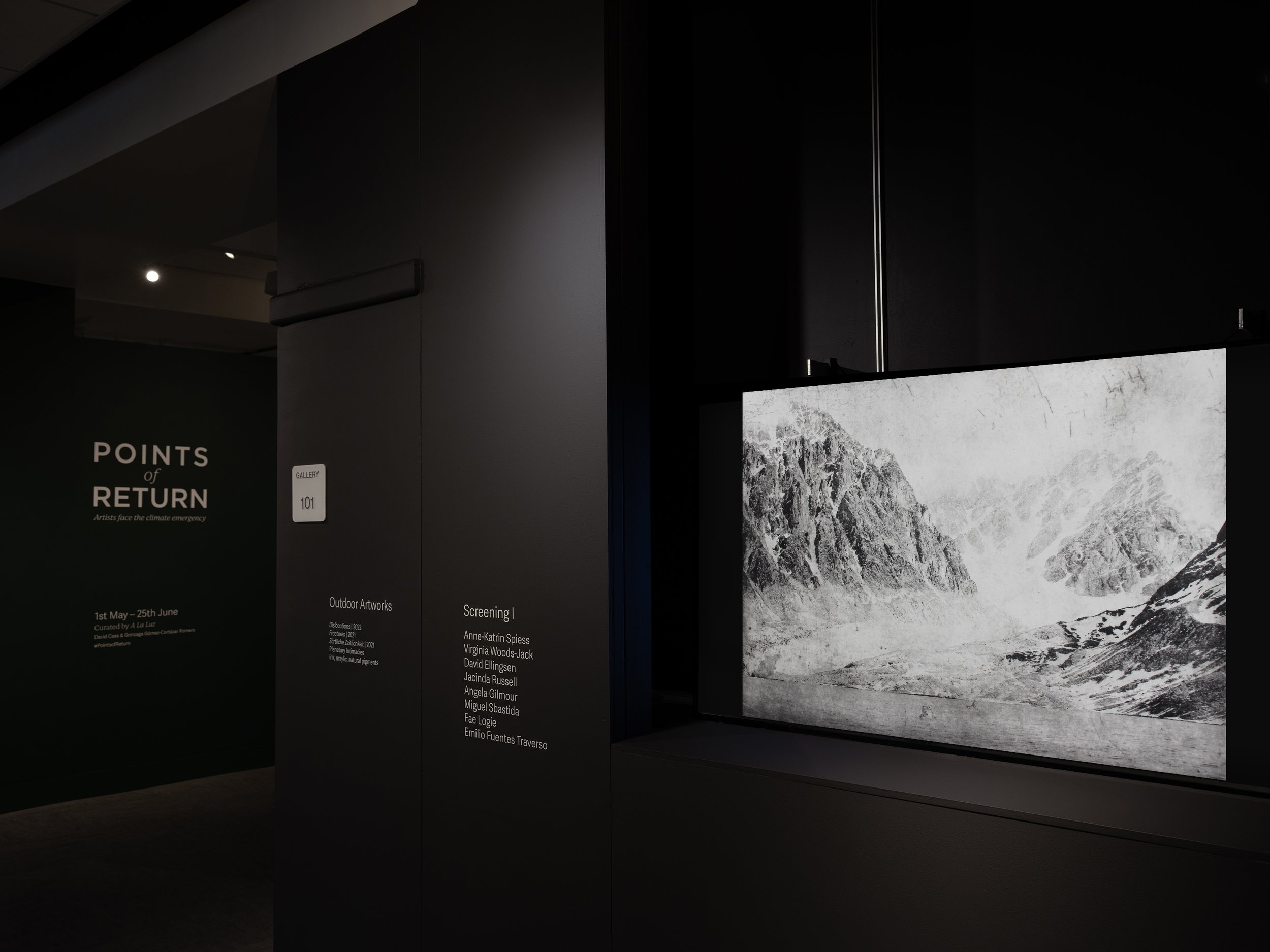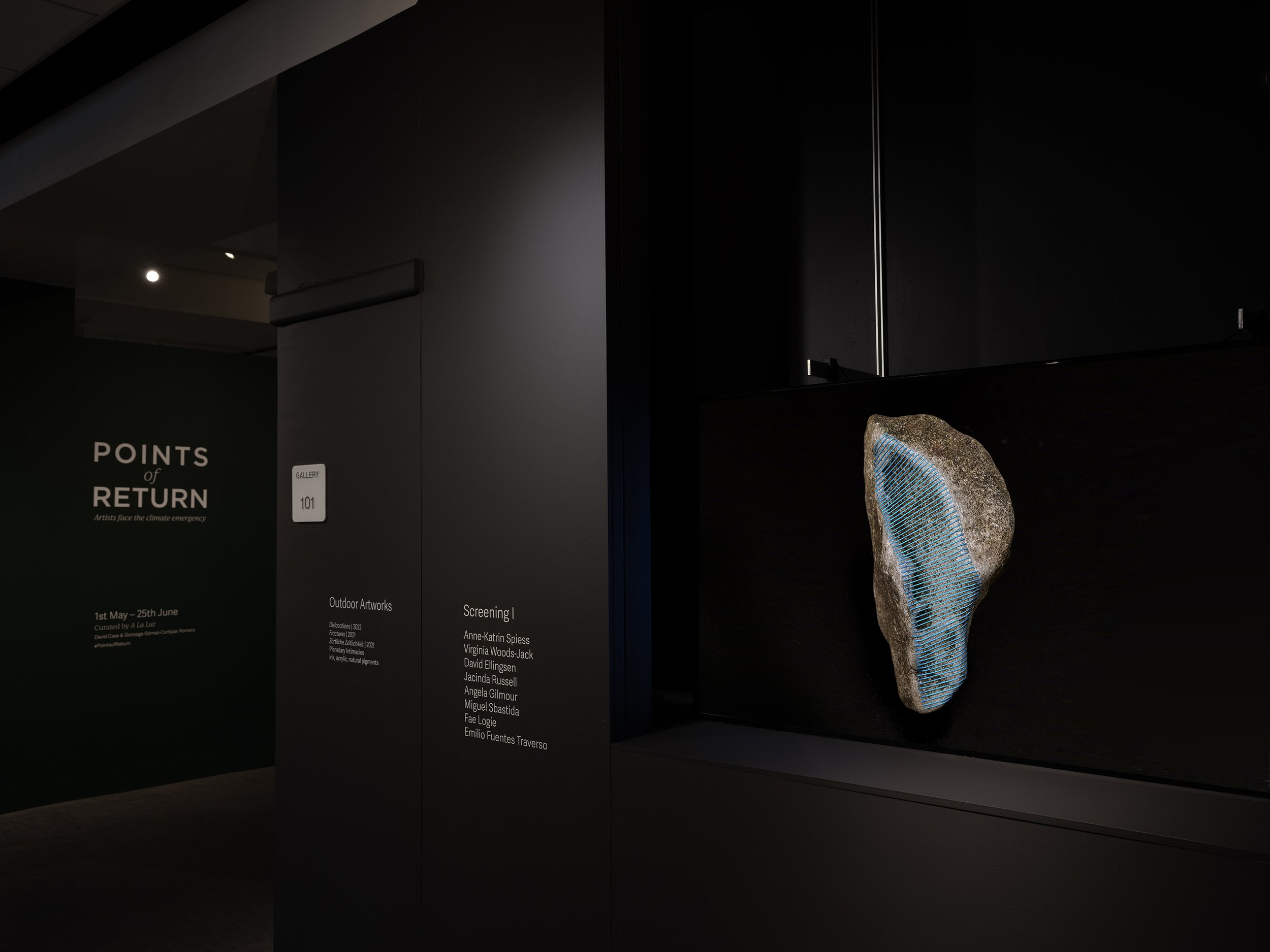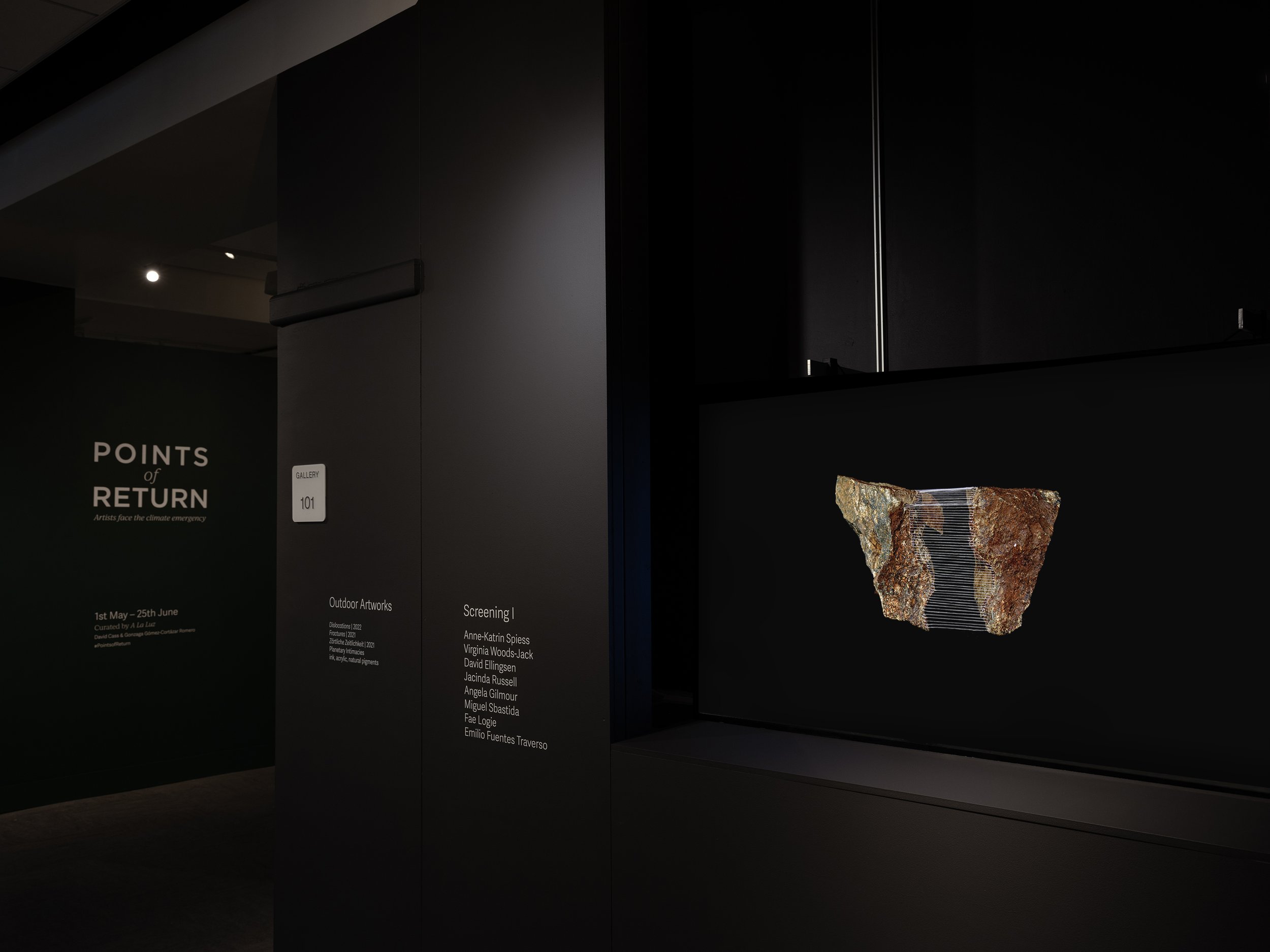Room V: Return | Ulrika Sparre The Entire Universe is Created by Me | Miguel Jeronimo Jungle on my Mind

27 international artists explore wide ranging aspects of the climate emergency, offering commentary & creative nature-based strategies.
After the success of the first, virtual manifestation of environmental exhibition Points of Return, a second instalment was held in the USA, this time in physical, large-scale form, at The Umbrella Arts Center, Concord MA (May 1st – June 25th 2023), split across five themed spaces. Much like the original online version of the exhibition, an immersive journey was mapped out by curators A La Luz, plotted to allow visitors fresh and engaging insights into wide-ranging aspects of the climate crisis, its end destination that of resolute optimism. For, while it may seem that we are racing toward a closing act, as our planet’s average temperature rises year-on-year, solutions remain within sight – we have not yet reached the dreaded “point of no return” and artists are in the unique position of being able to offer scientific data in new ways. Through dynamic display and crossing several artistic disciplines, the twenty-seven artists who now form the project’s lineup provide commentary, reflection, and creative restorative strategies. The curators are now seeking the project’s next venue. A summary PDF can be downloaded here.
ARTISTS
ON SITE
Planetary Intimacies
Felipe de Ávila Franco
David Cass
David Ellingsen
Tanja Geis
Gonzaga Gómez-Cortázar Romero
Miguel Jeronimo
Bethany Johnson
Luke Myers
Miguel Sbastida
Adam Sébire
Ulrika Sparre
Erin Woodbrey
ON SCREEN
Collin Bradford
Fiona Carruthers
Pieter Colyn & Emilie Miller
Emilio Fuentes Traverso
Tamara García
Angela Gilmour
Michael Krondl
Justin Levesque
Fae Logie
Tom Rice
Jacinda Russell
Anne-Katrin Spiess
Evalie Wagner
Virginia Woods-Jack
Originally the product of an open call, today Points of Return includes twenty-seven international artists. The project began life online during the first COVID lockdown, evolving to become a large-scale and highly praised exhibition of thought-provoking projects by artists who examine wide ranging aspects of the climate emergency, offering original commentary and imagining ways humankind can restore its natural bond with the environment. Artists were selected for the exhibition by A La Luz (David Cass & Gonzaga Gómez-Cortázar) with the help of a jury, including: Joseph Calleja, artist; Luce Choules, artist & writer, founder of TSOEG.org; Inés García, artist; Begoña Izquierdo, biologist & activist; Anna Macleod, artist; Miranda Massie, director of The Climate Museum; Elizabeth Monoian & Robert Ferry, founders & directors of the Land Art Generator; and Yasmine Ostendorf, founder of the Green Art Lab Alliance.
The first physical exhibition took place in Concord, MA (USA) where in the 19th century the naturalist movement – which would become the contemporary environmental movement in America – was born, thanks to writers and philosophers such as Ralph Waldo Emerson and Henry David Thoreau. We are now at a time in history where the environment is at the centre of the issues that humanity must address. It made sense to bring the project to a place, where over two-hundred years ago, great creative minds started discussing the importance of the natural world.
This expansive ongoing project features works that illustrate some of the key issues we face as we approach what many describe as a “point of no return”, bringing to the surface the problematic relationship the human species has toward planet Earth, highlighting how human activity has, without doubt, induced climate breakdown.
Often, it is the missing emotional element which inhibits our ability to connect with climate science. For this reason, the curators designed Points of Return so as to describe a journey, through which the visitor might feel and hear something of the Earth itself, and from those affected by recent climatic shifts.
As exhibition visitors progressed through The Umbrella Arts Center, they encountered climate tipping points – worst case future scenarios which equate to a total loss of control – but also opportunities which may allow us to turn away from so-called runaway climate change. To visualise these points of return, the exhibition proposed a reversal of time. By navigating the gallery anticlockwise, visitors explored five themed spaces: Eclipse, Heat, Retreat, Ground and Return; following a creative narrative from despair to optimism.
The Umbrella’s art director Stephanie Marlin-Curiel poignantly states that the artists “give voice to the Earth as an agent in telling its own story.”
Artist Elizabeth Awalt writes that “Points of Return broadened my view of environmental art. Through painting, sculpture, photography, installation and video I was moved by the visual presentations and then curious to know more about how the work related to the climate crisis.”
“Sometimes we want to turn away from tough issues in art”, Awalt observes, “but Points of Return conveys important themes in an accessible manner, through a variety of media and by highlighting the work of both emerging and established artists. It is a visually rich collection of art dedicated to the most critical issues of our time.”
Artist & scientist Adriana G. Prat adds to this with: “The intimate yet dynamic setting, with various floor levels and ambiances ... and the variety of artists’ approaches and perspectives provided powerful storytelling that encouraged contemplation and rumination on the various stages of our relation to the crisis. I hope more artists and venues continue to create these conversations to influence the cultural shift we desperately need for its resolution.”
Earthwatch founder Brian Rosborough describes Points of Return as “original and timely.”
Bethany Johnson: Findings
Ulrika Sparre: Ear to the Ground
Miguel Jeronimo: Jungle on my Mind
Ulrika Sparre: The Entire Universe is Created by Me
Erin Woodbrey: The Carrier Bag Series
The unique angle Points of Return takes is centered around the firm belief that there are reasons for optimism. These art projects show that there are multiple paths and approaches that can be taken, in order to restore the environmental balance we have destabilised. Our ongoing work aims to bring to light overlooked realities and nuances of the climate crisis.
David Cass: Where Once the Waters
Planetary Intimacies: Dislocations, Fractures, Zärtliche Zeitlichkeit
Ulrika Sparre: The Entire Universe is Created by Me
Miguel Jeronimo: Jungle on my Mind
The installation team constructed 5 interior viewing spaces for over 40 physical artworks, each section painted a colour symbolic of the works displayed, within a gallery of almost 400 square metres. Additionally, 2 theatres and 3 screening areas played over 3 hours of video art – from digitised artworks, to fine-art films and documentaries – with accompanying sound. Artworks by Planetary Intimacies were mounted on the gallery’s lawn. Production materials, hanging devices and printed products were carefully sourced; every effort was taken to minimise the carbon footprint of the exhibition.
Gonzaga Gómez-Cortázar Romero: Perpetual Snow
David Cass: Where Once the Waters
Felipe de Ávila Franco: Platform
Bethany Johnson: Safe Keeping
Erin Woodbrey: The Carrier Bag Series
“As a father touring the exhibition with my son, Points of Return was a thought-provoking experience of how art can help us communicate both the realities and the anxieties around climate change. All too often, the scientific approach to informing children on environmental issues can either seem dry, or worse, inspire a sense of fatalism. What was powerful in this exhibition was the various mediums that invited you to linger in the discomfort of acknowledging the Anthropocene, and not ending the experience with a vague sense of resolution—but the clear exhortation that art and creativity are important tools for dealing with those emotions. This allows us to digest the reality we are in, and be mindful. I say all this as if this was an exhibition for children—it wasn’t curated that way. It was as powerful for an adult as a child; art to experience together. That is rare. I think it is also rare to see a combination of conceptual art expressed in such a diversity of forms, but each in its own way reflecting excellence in craft. The care and attention given to this project holds your attention—demanding reflection and meditation—in a way that captures even the effervescent energies of my son... and that is exceedingly rare.”
— Chris Hardy, landscape architect, founder of Carbon Conscience, co-chair of the ASLA Climate Action Committee Subcommittee on Carbon Drawdown & Biodiversity
“Climate change is top of mind in my profession. Unfortunately, the topic often leads to conversations of inaction and blame. Points of Return offered a serious yet uplifting commentary, providing hope where there is often hopelessness. Visiting the physical exhibition in Concord, Massachusetts was especially profound given its location at the centre of transcendentalism. In many ways, the exhibition channeled the awe of nature that Ralph Waldo Emerson, Henry David Thoreau, and their contemporaries opined on. Points of Return expanded upon this, reminding us that nature is a powerful and dynamic yet also a creative force—with much of the work even co-authored by nature itself. Most importantly, Points of Return was accessible in that even my 7 and 9 year old kids enjoyed the exhibit, providing an opening to engaging conversations with them about a challenging subject. They were able to interact with and learn from the pieces which helped to simplify complex processes through striking visuals. It is not my generation, but future generations that have the most to benefit from this exhibition.”
— Michael Grove, landscape architect, civil engineer, ecologist, President of the Landscape Architecture Foundation
Gonzaga Gómez-Cortázar Romero: Perpetual Snow
Felipe de Ávila Franco: Broken Heart
Luke Myers: Credit Scene (print detail)
Felipe de Ávila Franco: Favela Offshore (projection detail)
David Ellingsen: Wildfire: Ascension No. 1, Wildfire: Ascension No. 2, Wildfire: 24 hours
Erin Woodbrey: The Carrier Bag Series
Miguel Sbastida: Slow Violence (painting detail)
Tanja Geis: Learning to Listen
Erin Woodbrey: Six Opaque Bottles Grouped Together in a Stack
Additional Commentary
“Mesmerising.” — Exhibition visitor Deb W.
“Impressive and done with much care.” — Exhibition visitor Brian M.
“As visually intriguing as the installations comprising Points of Return are, the narratives surrounding such thought-provoking work are equally fascinating.” — Arts writer Pamela Ellertson
“Points of Return reminds us that we must live sustainably, care for our resources and take action today for the sake of not only our own future, but the futures of generations to come.” — Artist & curator Liliana Folta
“Transforming conversations around the climate crisis from despair to hope is immensely powerful. Points of Return gives us that hope, there is still time to act, and we must.” — Architect & Umbrella executive director Jerry Wedge
“There is huge importance in developing off-site learning in spaces such as this, engaged with creative endeavour.” — Associate Professor Dr. Gary Husband (Faculty of Education & Society, Sunderland University)
“Beautiful, heartbreaking, many moments of reflection.” — Exhibition visitor Martha P.
“Inspiring, questioning, hopeful.” — Artist Rhea Banker
Featured by
Artfull
GBH News
Fair Planet
ArtsBoston
Living Concord
Future Ecologies
Art New England
Phnom Penh Post
The Concord Bridge
Best things Massachusetts
Above | Projected artworks by: Gómez-Cortázar Romero, Sébire, Miller & Colyn, Bradford, Levesque, Wagner, Carruthers, Krondl, Speiss, Rice, García, Speiss
Above | Adam Sébire: Feeling the Heat
Above | Selected digitally screened works by Woods-Jack, Russell, Gilmour, Fuentes Traverso | The full presentation from this screening area can be seen here

Outreach was a vital part of the exhibition, expanding upon themes explored in the artworks. The team designed a dynamic series of free events, screenings, guided tours and talks, including: Return to Resonance, a sound bath performance by Amy Duncan; American Literature Before, Through & After the Climate Emergency, a lecture by Dr. Joseph Donica (CUNY) in partnership with The Thoreau Society; a double screening of the acclaimed project Into the Oceanic, by artist-filmmakers Elizabeth Ogilvie & Robert Page, focussed on underwater habitats; a talk by Dr. Gary Husband on the educational entry points of environmental artwork; an exclusive preview of the short documentary Call of the Orcas, written and directed by Jessica Plumb; and a discussion with Brian Rosborough, founder of Earthwatch, on the seminal role of artists in framing and stimulating debate around climate change. The full 2023 schedule can be read here.



